#because both those statements are demonstrably untrue
Explore tagged Tumblr posts
Text
Reminder from a politically obsessed Michigander: every progressive policy Michigan has passed in the last two years was made possible by citizen ballot initiatives that a) ended partisan gerrymandering and b) expanded voting rights and ballot access.
Recent legislation passed under Michigan's Democratic trifecta (both levels of legislature and the governor):
Red flag laws (gun control)
Free 2 years higher education (economy)
Free preschool (economy)
Free school lunch (economy)
Expanded child tax credit for working families (economy)
Expanded civil rights law to include LGBTQIA+ protections
Ended right to work (pro-union economy)
Codified abortion protections (these were also passed by citizen ballot initiative though)
Stopped local governments from blocking green energy projects like solar and wind (environmental)
Banned child marriage (marriage before 18. You'd be surprised how many Republicans went on the record against this)
Actually, don't take my word for it: here's a list
Edit: I feel I need to put a somewhat finer point on this because I worry some of y'all missed a critical point -
Voting AND organizing got us this progress!!!
Voting alone was not enough until we fixed the underlying system.
Fuck yeah!
#these are just off the top of my head at 7 in the morning#i sound like a Democratic fangirl but i'm not i assure you#they definitely have also missed several opportunities on government transparency and ethics#i just really hate the argument that both parties are the same or government can't ever do anything#because both those statements are demonstrably untrue#government can work if it wants to#which means we have to elect people who want government to function#(which takes some long term organizing work i'll admit)#michigan#edit: the foundation for these legislative wins started in 2016 y'all#edit: politics is a long-game and voting alone is not enough
24K notes
·
View notes
Note
If I may ask a question regarding most communist groups I've experienced, both online and in person. I do consider myself a marxist-leninist, however I can't help but wonder. Why does it seem like any and all criticism of the USSR is frowned upon? Even well recorded things like deportation of jewish people in the Soviet Union or the treatment of Central Asians. I just struggle to understand why "The USSR was wildly misrepresented in the west and was vilified constantly" and "The USSR as a state did in fact commit violence to people" can't be co-existing statements. Most of my other socialist/communist friends are central asian or Eastern European, and its disheartening to see them be almost discarded based off of them recounting things their living relatives witnessed despite also following the ideals of Marx themselves.
idk, I'm not an expert in soviet history by any means and have a lot of knowledge gaps on this (for example, I'm more familiar with the USSR's early support for the zionist project than I am with its politics in Central Asia), but I think you can find (and should look for) many communists who will point these mistakes out without turning them into anti communist and/or revisionist propaganda, which is the crucial bit. a lot of people get defensive when someone says we should criticize the USSR precisely because "criticism of the USSR" is often just a bunch of untrue, anti-revolutionary and blown-out-of-proportion shit. using an example close to me: a lot of anti communists will point out the USSR outlawing homosexuality for a period as a gotcha to me...... as if, say, the US was doing any better at that time? (in fact, for many reasons, the US was doing demonstratively worse re:gay ppl). so i think a bit of resistance or wariness when someone brings this up without specifying what those "criticisms" entail is understandable, and I experience it myself. at the same time i do believe you should run from any soviet nostalgic calling themselves a marxist leninist but who is incapable of acknowledging not just the USSR, but any communist project has and will probably commit errors at some point, and they need to be examined to learn from them
3 notes
·
View notes
Text
𝐚𝐛𝐚𝐭𝐢𝐧𝐚 , 𝐮𝐧𝐥𝐢𝐤𝐞 𝐚 𝐟𝐥𝐨𝐰𝐞𝐫 / drabble ₊
"if imitation is required, then so be it. nil's safety is all that concerns me."
we would never be human, my brother and i. we could never hope to pass. even as i said these words to the divine dragon, i recognized that it was concession only. we needed somewhere to stay, a place to rest our weary forms, and regain our strength to continue on. i would make any placations and reassurances necessary to ensure this, so long as we needed it, and leave them behind when it was no longer of use. such simple falsehoods were common, a quotidian tool to dull the fangs of the prowling and jealous until another day. they would still come, of course. just as we would still depart.
——— ⟢
we would never come close to human, my twin and i. their faces made this clear. the divine dragon was hopeful and naive, and believed baselessly in our ability to make ourselves at home because, they assured us, they had been able to do the same.
on many occasions, i said to them: "that success is owed in part to your nature as a divine dragon. you underestimate the strength of a systematic distrust."
always, they would reply that my ' systematic distrust ' could only be dismantled by time and visibility, that given enough show of good intent, the others would have no choice but to accept us. i expressed that nil and i were not here to give shows of our intent, nor was it vital to us to earn the humans' trust. we had no interest in becoming the ' good ' fell dragons for others to praise.
always, they frowned. and i was unable to tell if my words had disappointed or saddened them.
——— ⟢
"so, why the lance?"
a curious voice broke through the haze of sweat, exertion, and the punishing summer heat. i looked down to my bruised hands, to chastened palms rough and raw from the abrasion of wood, and planted the training weapon point-down in the ground between us to rest. it was as much an acknowledgement of their question as it was a wordless statement to come no closer, and in this single gesture simultaneously provided answer.
"i thought you said you wouldn't fit in."
"i have not."
and this was not untrue. seasons had passed, and nil and i had still not found a more remote, more willing sanctuary. and the faces had not changed. still we undertook tasks together and together only, at times with the divine one for company and otherwise a solemn and happy pair. for though there were those in the army who may stomach us one or the other, both at a time set them ill at ease. i did not fault them, for it did likewise for me. and i would not let nil alone, whose blood was too gentle still to wield steel against soft humanity should they strike first.
"my brother has made some progress with his axe. with a spear, i possess another means with which to protect him."
"ah," the divine one said, as though this was expected, though there appeared to me a distinct hope that there was more to be revealed. i sensed a certain expectation — that it had been a natural decision to complement the preferences of those around me: my brother's hatchets; the divine dragon's sword.
but i would disappoint. the consideration had never occurred to me; only that, of the options available, the spear proved most versatile. to slash, to pierce, to strike bluntly, close or at distance; to be thrown, and lighter weight than an axe.
and above all, to keep the enemy at bay, and nil behind me.
i turned the human weapon on the divine one now to demonstrate this. their startled blue eyes shone wide beneath the sun. "facing your sword will assist me in improving quickly. three seconds and i will attack."
——— ⟢
we could never have been human, my other half and i. after all, the humans had all taken their leave, what few remained of them, splintered and swept away like shards of glass.
and now it was quieter than it had ever been — in gradlon or amid the army camps.
regardless of what we intended, we had become the ' good ' fell dragons in the end. some of their faces had eventually changed because of this; others had not. i wondered whether seeing this had satisfied the divine one, had made them believe we had indeed managed to fit in with time and visibility; i had never had the chance to ask. regarding the fresh grave now, the spotless stone, the clean engraving, i felt that so long as this may have perhaps been true, my own intentions ceased to matter. and the praise and judgment of others ceased to matter.
my hands were once again bruised, raw from battle though the old callouses had long faded, and i tried to summon the memory of them again through vision too clear to be appropriate. i willed my eyes to weep, and it did not come. i gave that to nil instead, asked him to weep for both of us.
the spear drove point-down in the grass between the two of us once more, beside the pedestal's simple tomb, as though the iron sought the one who rested beneath it like a compass needle.
i could not reach. my hands could not reach. my tears could not reach.
yet with this lance, i may . . .
. . .
【 nel has mastered halberdier 】
┃┃┃
▀▀ BOTANICAL HEADCANONS ₊ | abatina : is there anything in life your muse has changed their mind about over time ( due to becoming more educated on the topic , certain experiences , etc .) , or that they would change their mind about under certain circumstances ? | asked by @heriteur
#——— ⟢ 𝐖𝐈𝐒𝐃𝐎𝐌𝒇𝒐𝒐𝒍𝒆𝒅 】₊ writing.#wc 900#had this concept for my halberdier drabble for a while now and was staring at the hcs left in my inbox#and was like well why not combine them...........#i still need one (1) thread so im not actually claiming mastery yet but will be soon#title - aside from obviously coming from the hc prompt#is a reference to apparently some research has said abatina isn't Technically scientifically classified as a flower?? idk i rolled w it
8 notes
·
View notes
Text
The claim that by denying one very specific aspect of the Holocaust makes her an outright Holocaust denier is kind of absurd. If I said "the Nazis never wore red", despite how innocuous of a statement that might be, this would qualify me as a "Holocaust denier" per your definition. It takes a great leap in logic to go from an ignorant and/or untrue statement about a very small, very insignificant element of the Holocaust to "actually, the Holocaust never happened".
It's denying one of the explicit targets of the Holocaust. It's literally equivalent/comparable to saying the Holocaust didn't kill Roma people or political dissidents.
Because at the end of the day, that's all that being a Holocaust denier is: denying the existence of the Holocaust. You could maybe make this argument if she had said the Nazis had never killed trans people, but even then if she still acknowledges the Holocaust's existence as a whole, then she isn't denying the Holocaust, she's denying a fact of the Holocaust. Effectively, if she says the Holocaust happened, then she isn't denying it. If she says one or more particular demographics weren't targeted in the Holocaust, then she's still not a Holocaust denier, she's just stupid and spreading misinformation.
I want you to roll with me here.
Simply, the definition you're using...isn't correct. It may help if you give me explicitly what it would take to convince you of this, but I'll jump the gun a bit.
The Holocaust Museum. (Explaining Holocaust Denial and Distortion)
But softcore denial does not deny the Holocaust. There were people who would say, "Well, of course the Holocaust happened, but was it really six million? Of course the Holocaust happened, but were there really gas chambers?" I think any thoughtful person today knows that that's a ridiculous kind of thing. First of all for, deniers to be right, who has to be wrong? Well certainly all the survivors. You have the bystanders, but most of all, you have the perpetrators. What they said was, "I didn't do it. I was only following orders." So they had these different excuses, but they never said it didn't happen.
The Holocaust History Project
it denies events that have been objectively and empirically proved to have occurred, and because it works backward from the conclusion to the facts, thus necessitating the distortion and manipulation of those facts where they differ from the preordained conclusion (which they almost always do). In short, 'revisionism' denies something that demonstrably happened, through methodological dishonesty."
American Jewish Committee
Holocaust trivialization is not always obvious; a casual observer might miss it without an understanding of the terms, symbols, and relevant history. With that basis, it becomes more apparent why comparisons between the Holocaust and the coronavirus pandemic are more than insensitive, but dangerous. The Holocaust refers to the systematic murder of six million Jews by Adolf Hitler, his National Socialist German Workers’ (Nazi) Party, and their collaborators between 1933 and 1945. Six million Jews—two out of every three Jewish men, women, and children in Europe—were killed for no reason other than being Jewish. This horrifying statistic does not account for the Jewish survivors, who had to re-enter a world largely indifferent to their suffering. It does not account for the five million other victims, such as Roma, Sinti, LGBTQ, disabled, and others deemed “racially impure” by the Nazis.
The Wiesel Commission
This chapter will employ an adequate conceptualization, using both updated recent studies on the Holocaust in general and new interpretations concerning this genocide in particular. Insofar as the employed conceptualization is concerned, two terminological clarifications are in order. First, “distortion” refers to attempts to use historical research on the dimensions and significance of the Holocaust either to diminish its significance or to serve political and propagandistic purposes.
The OSCE
The following terms are frequently used to describe the methods of Holocaust denial or distortion: Historical revisionism: advocating a review of a certain interpretation of historical events based on new evidence or information. Historical “negationism” or denial: denying that an event took place, or downplaying its scale and impact.4
Museum of Tolerance
Holocaust Denial, also known as Holocaust Revisionism, is the attempt to deny or trivialize the atrocities committed by Nazi Germany against Jews and others during World War II.
International Holocaust Remembrance Alliance
The goals of Holocaust denial often are the rehabilitation of an explicit antisemitism and the promotion of political ideologies and conditions suitable for the advent of the very type of event it denies. Distortion of the Holocaust refers, inter alia, to: 1. Intentional efforts to excuse or minimize the impact of the Holocaust or its principal elements, including collaborators and allies of Nazi Germany; 2. Gross minimization of the number of the victims of the Holocaust in contradiction to reliable sources; 3. Attempts to blame the Jews for causing their own genocide; In 2010, the IHRA started grappling seriously with how to address the viral spread of denial and distortion online, the use of trivialization to spread antisemitism, and the warping of history to excuse Nazi collaborators of their crimes. In developing responses to these problems, IHRA experts realized they needed a working definition to identify the problem and focus their efforts.
Going on
That being said, the info on the targeted book burnings is neat so that's mainly why I'm even reblogging this. I didn't look into it at all because frankly it was irrelevant to the argument being made, but good information is good information nevertheless.
The book burnings, raiding, killing of, and criminalization of transgenderism is explicitly relevant to the "argument being made" that JK Rowling is denying aspects of the Holocaust.
I am sitting here, spending upwards of 20 minutes combing through any number of citations, organizations, and laws/legal frameworks and trying to present it to you in the most direct, and probably blunt way as possible to get this point home.
Denying targets, or minimizing the damage done to targets, of the Holocaust is Holocaust denialism. The Nazi targeting of gay, trans, and queer people broadly was explicitly connected to their antisemitism and antisemitic beliefs.
You can believe that JK Rowling spoke from ignorance, if you want. I am not going to try and rewrite your understanding of JK Rowling. But Calling her a Denier is, legally, internationally, in keeping with what those words mean.
She did the thing. Doing it was both transphobic and antisemitic and stupid and a whole host of other things.
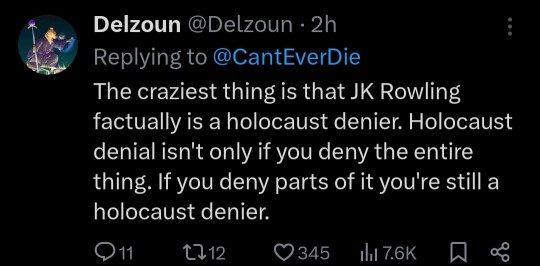
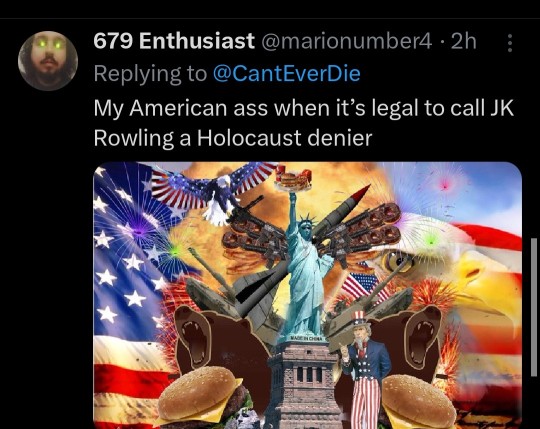
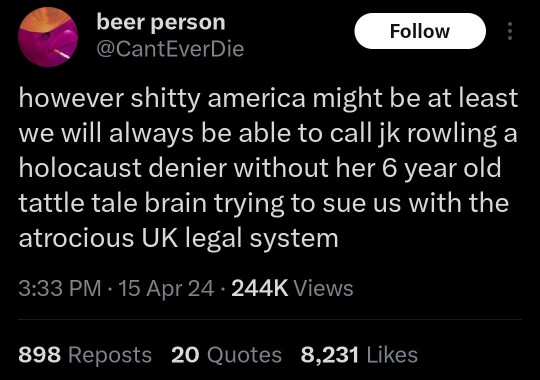

48K notes
·
View notes
Note
I joined TST about a year ago (but haven't gotten too involved due to the pandemic and my own personal anxiety) and was wondering if you had more sources for all the claims you make against them. I've tried doing my own research, but haven't been able to find much backing up your claims (not that I'm saying you're wrong.) I've noticed quite a few red flags ever since I joined, and am considering dropping my membership to become an "independent Satanist," but I would really appreciate some more concrete sources for why TST isn't as great as they make themselves out to be. It's hard to find much of anything about them online, but most of what I can find just talks about their "activism." (Although it's very likely that I'm not looking hard enough, or maybe just not looking in the right places.) I know you sometimes put sources on your posts about TST, but the ones I've read don't seem to have much information about the topics you're addressing.
The Satanic Wiki is going to link to a lot of primary sources, like government registries and financial documents.
The very, very long piece we did on the history of The Satanic Temple's co-owner and chief speaker Lucien Greaves as well as the fundamental problems with TST's structure utilizes the Wiki but also repeatedly links to news articles, first-person accounts from other members, and statements directly from Lucien Greaves and Cevin Soling themselves.
Same with our Twitter megathread thread, also available on Ye Olde Tumblr.
Both of those have copious sourcing.
There is no shortage of people talking firsthand about the problems with The Satanic Temple, and for all that TST defenders will say, "That was long ago. Things have changed!", they are never really able to point to exactly how things were changed, addressed, corrected, etc. Since it keeps happening.
Honestly, the biggest change may be that they wrapped more people up in NDAs and have been willing to threaten lawsuits against them (like with us), so the "TST is bad, actually, and treated people terribly" posts are fewer not because of an improvement in their behavior but their ability to more effectively silence dissent.
So, a bunch more of those articles under the break.
A lot of these links were even included as "evidence" in a now-dismissed defamation allegation against us, as well as our own explanation of what we learned from former members after we were ghosted by the local TST and accused of a coup.
Once of the requirements of defamation is that the plaintiff demonstrate where something is untrue rather than just makes them feel bad, which TST never bothered to do. So much for "freedom to offend" and "anything that can be destroyed by truth should never be spared its demise."
If you're looking for news articles, Anna Merlan's pieces for The Village Voice and Jezebel are very good critical, rather than fawning, looks at TST in 2014 and 2018, respectively.
But the Riverfront Times article about the Mary Doe case in Missouri by by journalist Danny Wicentowski is probably the gold standard for understanding why they just are not competent litigators and should not be supported by anyone, financially or otherwise.
#The Satanic Temple#TST#Satanic#Satanism#Lucien Greaves#Malcolm Jarry#United Federation of Churches LLC#SLAPP#Why I Left The Satanic Temple#Why I'm Leaving The Satanic Temple#Why You Haven't Left The Satanic Temple#The Struggle For Justice Is Ongoing
32 notes
·
View notes
Text
Podcasting "Qualia"
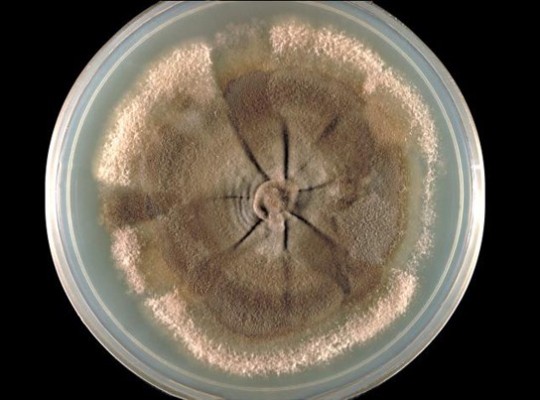
This week on my podcast, I read “Qualia,” my May, 2021 Locus Magazine column about quantitative bias, epidemiology, antitrust and drug policy. It’s a timely piece, given the six historic antitrust laws that passed the House Judiciary Committee last week:
https://doctorow.medium.com/moral-hazard-and-monopoly-42e30eb159a8
The pandemic delivered some hard lessons about quantitative bias — that’s when you pay attention to the parts of a problem that you can do math on, not because they’re the most important, but because you know how to do math.
The most obvious lesson comes from the failure of exposure notification apps, which were supposed to take the place of “shoe-leather” contact tracing, wherein a public health workers establish personal rapport with infected people to help identify others who might be at risk.
Contact tracing is a human process, built on trust: trust enough to talk about the intimate details of your life, trust enough to take advice on how to get tested and whether you should self-isolate.
That’s not what apps do.
Exposure notification apps measure whether a Bluetooth device you registered was close to another Bluetooth device for a “clinically significant” period of time.
That’s it.
They don’t measure qualitative aspects, like whether you were close to an infected person because you were in the same traffic jam in adjacent, sealed automobiles — or whether you were both at the Ft Lauderdale eyeball-licking championship.
And they certainly don’t create the personal rapport that’s needed to understand each person’s idiosyncratic health circumstances and complications — whether they need child care, or are at risk of losing their under-the-table jobs if they self-isolate.
We didn’t want to commit the resources to do contact tracing at scale, we didn’t know how to automate it — but we did know how to automate exposure notification, so we incinerated the qualitative elements and declared the dubious quantitative residue to be sufficient.
It’s the quant’s version of searching for your car keys under the lamp-post because it’s too dark where you dropped them.
It’s not just foolish, it’s also deceptive — quantizing qualitative elements is a subjective exercise that produces numbers that seem objective.
This is where antitrust law comes in. Prior to the neoliberal revolution of the Reagan years, antitrust concerned itself with “harmful dominance,” with regulators asking whether mergers and commercial practices were bad for the world.
Obviously, “bad for the world” is hard to measure. Regulators evaluated claims from all corners: both political scientists worried about the outsized lobbying power of large companies and workers worried about monopolies’ outsized power over wages and conditions got a say.
So did environmentalists, urban planners, and yes, economists, too.
The Chicago School — hard-right conservative economists with cult-like status among Reagan and big business simps — insisted that all this qualitative stuff had to go.
They argued that consideration of qualitative elements left too much up to judges, so two similar companies engaged in similar conduct might get different verdicts out of the antitrust system. This, they said, make a mockery of the notion of “equal treatment before the law.”
Instead, the Chicago Boys — led by Robert Bork, a Nixonite criminal and a sort of court sorcerer to Reagan — demanded that qualitative measures be left behind in favor of a purely quantitative analysis of whether a monopoly hurt “consumer welfare.”
The way you’d measure “consumer welfare” was by checking to see whether a monopoly was making prices go up — if not, the monopoly was deemed “efficient” and thus socially beneficial. Prices are numbers, numbers can be measured.
But that’s not how it worked in practice. When two companies wanted to merge, they could hire a Chicago fixer to construct a mathematical model that “proved” that they resulting megafirm would not raise prices.
No one could argue with this, because Chicago School consultants had a monopoly over building and interpreting these models — the same way court magicians laid exclusive claim to the ability to slaughter an animal and read the future in its guts.
And if the prices did go up? Well, the same Chicago model-makers would be paid to produce a new model to prove that the price-rises were not the result of monopoly, but rather, rising energy costs or higher wages or the moon being in Venus.
Even by their own lights, “consumer welfare” was a failure. Monopolies drive prices up. Amazon Prime is a tool to drive up prices in every store, not just Amazon:
https://pluralistic.net/2021/06/01/you-are-here/#prime-facie
Apple’s App Store monopoly drives up app prices:
https://www.engadget.com/2019-05-13-supreme-court-apple-app-store-price-fixing-lawsuit.html
Luxxotica bought every eyewear brand and every eyewear retailer and the world’s largest optical lens manufacturer and drove prices up 1000%:
https://www.latimes.com/business/lazarus/la-fi-lazarus-glasses-lenscrafters-luxottica-monopoly-20190305-story.html
The highly concentrated pharma industry raises prices every single year:
https://patientsforaffordabledrugs.org/2021/01/14/2021-price-hikes-pr/
What’s more, there’s a straight line from “consumer welfare” to price-fixing.
Think about publishing. A decade ago, the Big Six publishers were embroiled in a bid to force Amazon to raise ebook prices, which led to fines and settlements for harming “consumer welfare.”
Today, the Big Six publishers are the Big Four, because Random House, the largest publisher in the world, gobbled up Penguin and Simon & Schuster. When RH, S&S and Penguin were three companies, it was illegal for them to collude on pricing.
But after their mergers, the three former CEOs — now presidents of divisions within an unimaginably giant company — can meet in a board room and plan exactly the same price-fixing strategy, and that isn’t illegal under “consumer welfare” antitrust — it’s “efficient.”
The Chicago School’s “consumer welfare” was only ever a front for “shareholder welfare,” the ability of large firms to avoid “wasteful competition” and extract an ever-larger share of the take for shareholders at the expense of customers, workers and the public.
The entire business of “consumer welfare” is a fraud, starting with Robert Bork’s insistence that a close reading of the US’s four major antitrust laws will reveal that they were never intended to be used for any purpose *other* than consumer welfare protections.
This is manifestly untrue, a Qanon-grade conspiracy that is refuted by the plain language of the statutes, the statements of their sponsors, and the record of the Congressional debates leading to their passage.
Despite the wealth of evidence that US antitrust is not a “consumer welfare” project, neoliberals have insisted that their project was not “reforming” antitrust, but rather, “restoring” it to its original purpose.
It’s a Big Lie, and they know it. That’s why GOP Senators Mike Lee (UT) and Chuck Grassley (IA) introduced “The TEAM Act to Reform Antitrust Law” — a bill intended to neutralize the muscular new antitrust bills that just passed the House committee.
https://washingtonmonthly.com/2021/06/25/the-plan-to-water-down-antitrust-reform/
The bill does two things:
It takes antitrust authority away from the FTC, sidelining the incredible Lina Khan, a once-in-a-generation antitrust scholar who now runs the agency; and
It codifies “consumer welfare” as the basis for US antitrust law.
That second part is the tell: after 40 years of insisting that any rational reading of US antitrust proved that “consumer welfare” was obviously its sole purpose, they’re now introducing a law to *change* its purpose to “consumer welfare.”
Like the Stolen Election lie, they never truly believed this one. The pose of objectivity that quantizing antitrust allowed was never about creating a truly objective standard for competition policy — it was only ever about neutering competition policy.
The thing is, there is a way to integrate both the objective and subjective into policy-making — as was demonstrated by David Nutt’s 2008 leadership of the UK’s Advisory Council on the Misuse of Drugs, which established the policy framework for a wide range of drugs.
Nutt’s panel of experts rated drugs based on how harmful they were to their users, the users’ families, and wider society. This allowed him to sort drugs into three categories:
Drugs that were dangerous irrespective of your public health priorities;
Drugs that were safe irrespective of your public health priorities; and
Drugs whose safety changed based on whether you prioritized the safety of users, families or society.
Those priorities are a political choice, not an empirical finding. Nutt told Parliament that it was their job to establish those subjective priorities, and once they did, he could objectively tell them how to embody them in the rules for each drug.
This is a beautiful example of how the objective and subjective fit together in policy — and the tale of what happened next is a terrible example of how “consumer welfare” hurts us all.
You see, booze is one of the most concentrated industries in the world. The “consumer welfare” standard let booze companies buy one another until just a handful remain — globe-straddling collosii with ample resources to influence policy-makers.
Nutt, an empiricist, reported just as rigorously on the harms of booze — one of the most dangerous drugs in the world — as he did on other drugs. He was fired for refusing to retract his true statement that tobacco and alcohol were more dangerous than many banned drugs.
Thanks to “consumer welfare” antitrust, the alcohol industry is able to choose who its regulators are, and use their political influence — purchased with the excessive profits of a monopolist — to rid themselves of pesky officials who actually pursue objective policy.
You can read the column here:
https://locusmag.com/2021/05/cory-doctorow-qualia/
And here’s the podcast episode:
https://craphound.com/news/2021/06/28/qualia/
As well a direct link to the MP3 (hosting courtesy of the @InternetArchive; they’ll host your stuff for free, forever):
https://archive.org/download/Cory_Doctorow_Podcast_395/Cory_Doctorow_Podcast_395_-_Qualia.mp3
And here’s a link to my podcast feed:
http://feeds.feedburner.com/doctorow_podcast
Image: OpenStax Chemistry: https://commons.wikimedia.org/wiki/File:Figure_24_01_03.jpg
CC BY: https://creativecommons.org/licenses/by/4.0/deed.en
20 notes
·
View notes
Text
BBC Merlin 4x05: His Father’s Son
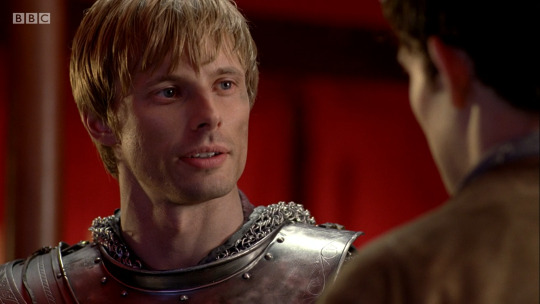
Here's a round-up of my main observations from BBC Merlin's "His Father's Son" (4x05).
1- MERLIN AS A KNIGHT
I have to admit that Merlin as a sorcerer and trusted adviser appeals to me the most, but I did write a lengthy post analysing how Arthur had turned Merlin into an excellent fighter. This refutes claims that Merlin gave more to Arthur than he received in return.
At the beginning of 4x05, we see Merlin selected to play a new role: that of knight. How did this come about? Arthur Pendragon is best known for his skills as a warrior, but he deserves more credit for his military tactics. These destroy the popular yet false idea that he is unintelligent. More on the latter in a forthcoming post.
One of Arthur’s favourite tactics is using decoys. Previous examples of him using decoys include: The Castle of Fyrien (3x07), when Arthur used Merlin as a decoy to entrap Cenred’s soldiers; Aithusa (4x04), when Arthur used himself as a decoy to get Sir Percival to safety; Arthur’s Bane Part 2 (5x02), when Arthur uses Merlin as a decoy to enrage the slave traders before they escape-- by far my favourite example.
All things considered, I don’t think it takes long for Arthur to choose Merlin. Furthermore, this decision may have taken place before they reached their selected location, as Agravaine later mentions a previous attack by Caerleon on the border. This choice demonstrates that Arthur has higher confidence in Merlin's abilities than he does of in his knights-- else he would have chosen them. We must conclude that Merlin is Arthur's best fighter, though at first glance, we wonder why an unarmed man follows trained knights into battle.
Merlin is sharp, fast, has high stamina, and is incredibly resourceful. Most of all, however, he is incredibly brave. In fact, when rewatching 1x02, I was surprised to see Arthur acknowledge that Merlin was "braver than you look." This despite Arthur’s frustration that Merlin did not try hard enough during practice ("Come on, Merlin: I've got a tournament to win!").
What’s more, in that same episode, Merlin complains about his first day, but later on, we see his fascination wth the ongoing tournament. Then he admitted to Gaius that working for Arthur (in the context of said tournament) "isn't totally horrible all the time." It took one day for him to change his opinion!
Sure, Merlin would continue to treat the fighting as pointless violence, and Arthur as having nothing more in his head than a desire to knock "the seven bells" out of other people (3x04). However, even in 1x02, when he applauds Arthur's fighting, his actions tell a different story. We associate this habit of liking something whilst pretending otherwise to Arthur, yet Merlin has it as well.
As I have said before, Merlin and Arthur have profound differences, yet are profoundly alike.
2- MERLIN AS A SERVANT
It comes as no surprise that Merlin would return to serving after the beginning of 4x05. However, what that change represents sets the tone for this entire episode: Arthur dismissing Merlin's counsel repeatedly in favour of listening to his uncle.
When Arthur says, "so please, stick to what you do know," you have to wonder whether Merlin remembered being entrusted with the role of knight. Now, Arthur puts him back in his place.
Here's another example: "My conscience is clean, which is more than I can say for my room, so just... do your job, will you?" Yet just yesterday, that job involved Merlin risking his life against enemy forces by dressing as a knight.
By the way, you can tell that Arthur doesn’t believe his own excuses, because he keeps using the passive voice to justify killing Caerleon: “...a show of strength was necessary… an example had to be made… My conscience is clean…”
Merlin’s face after Arthur claims he doesn’t need anyone is self-explanatory.
3- NEW THOUGHTS ON ANNIS
Is Queen Annis a good person? Actually, no.
First of all, she knows and approves of her husband invading foreign kingdoms to plunder their wealth. Such invasions naturally cost not only the lives of Arthur's men, but her own, too.
Furthermore, despite accepting Arthur's offer of a fight by single combat, she is prepared to cheat by enlisting Morgana's power. Perhaps if Arthur had died, too, she would have felt some remorse. Yet she still takes a monumental risk with Arthur's life in blatant violation of the knight's code. One has to wonder about her reaction had Camelot plotted against her armies in the same way.
Then we have Annis calmly ordering Merlin’s execution without giving him a chance to explain himself. The lack of emotion in her voice suggests she has done this before.
Speaking of cruelty, Annis’ champion seems to enjoy inflicting pain on his enemies, yet the Queen claims that he “served my husband well.” I dread to think what she means by “served”.
I will also note that Queen Annis disdains magic, referring to Morgana as “witch”. As I have said before, Uther did not begin prejudice against magic; sorcerers were disliked and feared elsewhere, too, including by those who disliked Uther. Many sorcerers caused this prejudice by engaging in manipulative, violent, and wicked deeds.
Examples include High Priestesses using Fomorrohs to enslave people’s minds (4x06); Cornelius Sigan using his power to change day into night and acquire vast wealth (2x01); sorcerers using special blades to murder people (3x04), and so on.
None of this takes away from Annis’ complexity, nor does it undermine her immense humility when she accepts defeat and withdraws from Camelot. After all, much of Annis' rage and desire for vengeance stems from intense grief over Caerleon's death, so we can assume her marriage was a happy one.
Forgiving the man who destroyed her domestic happiness (as well as leaving her people without a king) shows tremendous nobility on Annis’ part. I think Arthur sees that, for he is always humble and respectful before her.
4- LONG LIVE THE KING
Few people respect Arthur more than Merlin. So when he doesn’t join in with cries of “Long live the king!”, you know something is wrong.
5- CONTROL YOUR FEAR
Episode 4x03 has a hilarious scene where a drunk Arthur claims he isn’t even a little bit scared, because, “I’m a warrior. You learn to control your fear.” Then Arthur walks smack bang into a pillar. Never fails to make me laugh. Minus the drunkenness, Arthur was telling the truth about controlling his fear.
You can see this at least twice in this episode: first, when he sees how many men Annis has brought against Camelot, and secondly, when he sees the size of Annis’ giant. In both cases, Arthur harnesses his fear into determination, which is another sign of a great warrior.
Next up, we have a fascinating scene where Arthur watches his men joking by the fire. It's a great way of showing Arthur’s care for these men, as well as his guilt that impending war will end their lives. In a sense, Arthur has to control his fear yet again.
6- TRUST IN MERLIN
After the above scene, Gwaine asks Merlin if Arthur is all right, and the fact that Merlin can describe Arthur's feelings without even questioning the King once again shows the unique nature of their friendship. Merlin sees Arthur's expression, and he just knows. And Gwaine knows that, hence why he does not question the King himself.
Listen to the silence after Merlin's response. Nobody questions Merlin's judgement: they just reflect. Given the way Arthur has repeatedly dismissed Merlin's advance in favour of his uncle, I think he could have learned something from his own knights.
I wonder whether the knights would ask Merlin something about Arthur in this way, whenever the king was absent. In ancient kingdoms, kings had advisers, and in order to earn the monarch's favour, you spoke to the latter first. Did Merlin ever play that role for the knights?
7- MERLIN’S IDIOCY
Now, I have a problem with Merlin telling Arthur that 1)- he would have taken any other option but to face war with Annis, and 2)- his decision to kill Caerleon “was made in the best interests of Camelot.”
Sorry, but it wasn’t. Merlin knows that. I understand that he has to rally Arthur’s spirits so that they can win against Annis, but I am glad that Arthur knows full well he has done wrong. Both Merlin and many fans do not give Arthur enough credit for recognising his own errors.
However, even these foolishly optimistic statements pale in comparison to Merlin's reckless and self-righteous interference when Arthur negotiates with Queen Annis. I burst out laughing when he trips and falls headlong into the tent, a metaphor for his impetuousness.
Merlin eavesdrops outside Annis’ tent, gets caught (so he didn't conceal himself), and then has the audacity to say, “Sorry about this!” to Arthur! Not only that, he got angry over being called a “simple-minded fool”, when he couldn’t even walk in a straight line to follow the king, got himself caught and almost killed by enemy soldiers, and made Arthur look as though he were double-crossing Annis!
I completely agree with Arthur’s anger: “Oh, I was being kind, believe me: you almost got me killed in there!” Correct. Merlin simply could not trust that Arthur knew what he was doing, and decided to interfere. Instead of apologising for getting Arthur into trouble, Merlin remains on the defensive, claiming without evidence that Arthur was “doing a pretty good job of that yourself!”
This is untrue. Arthur surrendered himself to Annis’ men. The most injury he received was a slap. He asked a favour. That isn’t risking your life. In fact, Arthur was trying to save lives, and if Merlin had been listening properly (or just stayed in bed), he would have seen that. Only after Merlin’s sudden entrance did Arthur face serious danger from Annis.
Now, Merlin’s explanation for this is, “I’m your friend! I was looking out for you.” I don’t doubt it. But once again, Arthur is right: “I appreciate that in your very confused way, you’re only trying to help, but please: don’t do it again.”
Condescending? Of course. But this time it was Merlin who provoked him into this anger.
8- MORGANA
Despite all her power, Morgana still has to defer to non-magical kings and queens. After all, she requires their military assistance to take over Camelot.
You can also see how Queen Annis detects Morgana’s hatred, greed, self-righteousness, hypocrisy, and bloodlust. In one glance, Queen Annis begins questioning the wisdom of working with a sorceress she does not trust, not least on account of Morgana being a sorceress.
In fact, Arthur’s prowess as a warrior impresses her more: “You have as much to lose as I if Arthur wins…” Fascinating scene.
9- THANK YOU, OLD FRIEND
It’s ironic that arguably the best scene in 4x05 begins by showcasing Arthur’s cynicism. No guesses why Arthur did not tell Merlin about breaking off his relationship with Gwen earlier. That speaks volumes. If he had told Merlin, I think they would have had an argument similar to that of 4x11.
Only when Arthur realises that he may die does he ask Merlin to pass his ring onto Gwen with an apology. You can see the guilt etched onto his face as he refuses to make eye contact. Interestingly, Merlin does not ask any further questions.
Arthur’s entrusting Merlin to look after Gwen in the event of his death says a lot. For example, that ring is technically royal property, yet Arthur gives it to a servant for safe-keeping, rather than his next-of-kin, Agravaine. Despite claiming to need his uncle’s advice, Arthur will not trust Agravaine with such duties. Has Arthur made a medieval will or testament? Obviously, I have no idea, however, this episode already shows Arthur’s reliance on Merlin to deal with family matters.
Another interesting aspect to this scene is Merlin’s silence after Arthur makes an indisputable point. This dispels any idea that Merlin’s advice was always correct. On several occasions, Merlin had to defer to Arthur’s judgement, because he saw the truth and wisdom behind it. “I don’t know what will happen. But for the first time since I became king, I know in my heart I’ve made the right decision.”
Got to love Arthur’s half-amused, “You’re not about to start crying on me, are you?” He expects Merlin to be either in good spirits or confident, because that is how he, too, remains confident. Arthur is an optimist, yet Merlin becomes a pessimist, so the king must pull Merlin together with light and yet serious teasing.
Needless to say, Arthur calling Merlin “old friend” implies that they have been friends for a long time. So why do some fans still think that Arthur had trouble admitting that Merlin was his friend? Also, the word “old” in this context can imply reliability, constancy. Arthur chose that word to describe Merlin’s value, as well as the length of their friendship.
The great thing about Arthur is that while he makes some serious errors, when he does repent, he does so well. Not only does Arthur graciously thank Merlin for his concern, but he makes it clear to Agravaine that he relies on Merlin’s judgement prior to entering battle. This supports my earlier statement that Merlin is Arthur’s best fighter, as well as right-hand man; Arthur does not leave for the fight until Merlin has confirmed his readiness.
On top of this, Arthur later admits that he might be a cabbage head. “I should have listened to you, Merlin. Just this once, I think you were right-- even if you are the worst servant in the five kingdoms!”
By implication, Agravaine is wrong. Arthur won’t say that, of course, but we saw Merlin’s sound advice competing with Agravaine’s lies for this entire episode. We can only conclude that regardless of what he says, Arthur trusts Merlin more than members of his own family.
And this is a theme which will continue and grow for the remainder of Season 4.
FURTHER POINTS:
Merlin’s fighting skills
Paradoxes of Arthur and Merlin’s friendship
#merlin#bbc merlin#arthur#king arthur#arthur pendragon#merlin & arthur#merlin & arthur friendship#merlin season 4#merlin his father's son#merlin 4.05#queen annis#caerleon#morgana#morgana pendragon#character analysis#plot analysis#merlin fandom#merlin characters#lord agravaine#arthurian legend#uther#king uther#uther pendragon#writeblr
29 notes
·
View notes
Text
(2021/04/09) New Revelations on Germ Warfare: It’s Time for a Reckoning with Our History from the Korean War
[counterpunch.org][1]
[1]: <https://www.counterpunch.org/2021/04/09/new-revelations-on-germ-warfare-its-time-for-a-reckoning-with-our-history-from-the-korean-war/>
# New Revelations on Germ Warfare: It’s Time for a Reckoning with Our History from the Korean War - CounterPunch.org
by Jeffrey Kaye
9-11 minutes
* * *
_The New York Times, which for years has maintained that U.S. airmen’s statements about use of biological weapons during the Korean War were “false confessions” obtained by Chinese and North Korean torture, never acknowledged the following submission sent to its opinion section in November 2020. I am publishing the article instead at CounterPunch, which is not afraid of uncomfortable truths._
![A picture containing textDescription automatically generated][2]
[2]: https://uziiw38pmyg1ai60732c4011-wpengine.netdna-ssl.com/wp-content/dropzone/2021/04/a-picture-containing-text-description-automatical.png
Screenshot from CIA pamphlet, “Baptism by Fire: CIA Analysis of the Korean War”.
It’s been 70 years since the beginning of the Korean War. For young adults in their twenties today, that’s ancient history. It is as distant to them as the 1905 Russo-Japanese War was to me when I was 20 years old! But in both China and North Korea, the memory of the Korean War and charges of war crimes against America from that war remain a vivid part of the national consciousness, stoked at various times by the regimes in charge.
The North Korean and Chinese allegations of American use of biological weapons during the Korean War made headlines at the time, and the controversy over U.S. Air Force officers admitting under enemy interrogation details of germ warfare attacks rocked the U.S. defense establishment. In 1998, scholars connected to the Cold War International History Project (CWIHP) at the Wilson Center published documents that they claimed showed the germ warfare charges were a hoax, “a grand piece of political theater,” as Milton Leitenberg, Senior Research Fellow at the Center for International and Security Studies at the University of Maryland, [notably put it][3].
[3]: <https://diplomacy21-adelphi.wilsoncenter.org/publication/chinas-false-allegations-the-use-biological-weapons-the-united-states-during-the-korean>
![Text Description automatically generated with low confidence][4]
[4]: https://uziiw38pmyg1ai60732c4011-wpengine.netdna-ssl.com/wp-content/dropzone/2021/04/text-description-automatically-generated-with-low.png
_From CIA document release, “Baptism by Fire,” File #_[ _1952-03-06a.pdf_][5]
[5]: <http://web.archive.org/web/20170127160812/https://www.cia.gov/library/readingroom/docs/1952-03-06a.pdf>
But in 2010, the CIA declassified hundreds of communications intelligence, or COMINT, daily reports from the Korean War. U.S. historians have mostly ignored this release. Over the past few years, I have undertaken an examination of these documents and found more than two dozen that were pertinent to the biological warfare charges. As I demonstrated in a [September 2020 essay][6] on the topic at Medium.com, these [documents][7] vividly portray the reactions and responses of North Korean and Chinese military units responding to biological weapons attack.
[6]: <https://jeff-kaye.medium.com/a-real-flood-of-bacteria-and-germs-communications-intelligence-and-charges-of-u-s-4decafdc762> [7]: <https://www.documentcloud.org/documents/7207516-BW-COMINT-Baptism-Files.html>
What follows are some samples from the entire batch of reports. The grammar and syntax can seem off at times, as the U.S. military and CIA lacked experienced linguists during this period.
Relying on information from the codebreakers at the Armed Forces Security Agency, the predecessor of today’s National Security Agency, a top-secret March 6 CIA report read, “An unidentified Chinese Communist unit on 26 February reported that ‘yesterday it was discovered that in our bivouac area there was a real flood of bacteria and germs from a plane by the enemy. Please supply us immediately with an issue of DDT that we may combat this menace, stop the spread of this plague, and eliminate all bacteria.’”
Another CIA report stated that on 3 March a “North Korean coastal security unit in eastern Korea reported… that UN bacteriological warfare agents in the surrounding area had prevented the movement of transportation since 21 February. Later in the day the unit reported to Pyongyang that ‘Pupyong (just southwest of Hamhung)… is the contaminated area. According to the correct news, no one can pass through it. If you do not act quickly, the 12th and 13th guard stations will have fallen into starvation conditions.’” [Parenthesis in original]
Then we have the following from a 6 March report: “Two coastal security stations in northeastern Korea reported on 11 March that ‘the bacteria bomb classified as mosquito, fly, and flea were dispersed,’ and ‘an enemy plane dropped ants, fleas, mosquitos, flies and crickets.’” The emphasis on insects reminds us that the Communists alleged at the time that the U.S. was working secretly with the former scientists of Japan’s Unit 731, who experimented extensively with the use of insect vectors in germ warfare. During this period and for years afterward, the [U.S. falsely denied][8] that Japan’s scientists had committed war crimes and attacked China with biological weapons during World War II.
[8]: <https://www.laguardia.edu/maus/files/ethics-ch-16.pdf>
According to a 21 March CIA COMINT report, “a North Korean message, probably from the 23rd Brigade in western Korea, reports the alleged dropping of bacteria in the area occupied by the ‘18th Regiment, 4th Division.’”
A 9 May report: ‘They dropped spiders and ants over Songjin city… today,’ a North Korean coastal security station in northeastern Korea reported…. The message continues that the alleged drop area has been isolated and is being investigated by ‘the plague prevention work committee.’”
Not all the reports verified the use of bacterial weapons. In a 25 March intercept from a North Korean battalion in the Hamhung area, a North Korean military sanitation officer, sent to affirm a supposed biological warfare attack “reported that the policeman’s report was false and that the flies ‘were not caused from bacterial weapon but from the fertilizers on the place.’” In other words, not only were the attacks not a hoax, but Communist officials examined such reports from the field on the spot and noted cases where the accusations were mistaken, or found in some cases that no insects carried infectious material.
As Milton Leitenberg stated in a [2016 essay][9], which otherwise maintained the germ war allegations were untrue, the charges themselves remain 70 years after the fact “an issue of great importance to those concerned with arms control and allegations of the use of Weapons of Mass Destruction.” He was right. This alleged war crime is of high importance, and achieving peace with nuclear-armed China and North Korea depends, in part, on being honest about past transgressions of the United States against those countries.
[9]: <https://cissm.umd.edu/research-impact/publications/chinas-false-allegations-use-biological-weapons-united-states-during>
Both the alleged Soviet documents presented back in 1998 by Mr. Leitenberg and scholar Kathryn Weathersby, and also a later purported memoir by Chinese doctor Wu Zhili, which also [alleged falsification][10] of the BW evidence, cannot withstand the failure of those documents, whose provenance has always been obscure, to withstand independent corroboration by external sources of information, not least, from the CIA COMINT documents themselves.
[10]: <https://www.questia.com/library/journal/1P3-3957054041/a-chinese-admission-of-false-korean-war-allegations>
The Leitenberg/Weathersby documents allege that Communist in-fighting over the BW “hoax” led to a cessation of Communist charges of germ warfare by early 1953. But that’s not true. The charges continued throughout 1953 (as this [_New York Times_][11]article described) and for long afterward. Even more telling, the CWIHP documents failed to tell a coherent story, moving around the date of the alleged falsification of BW attack sites from _before_ to then _after_ an international team of investigators arrived to examine the charges. The date is crucial because the time to organize a large-scale deception — one that would involve hundreds of eyewitness reports given to investigators, the collection of bomb fragments, the testing materials and samples from alleged bacterial attack, etc. — would take some time, if it could be successfully done at all.
[11]: <https://www.nytimes.com/1953/09/08/archives/germ-war-confessions.html>
There were other problems with the CWIHP documents, which only document from two to four sites of simulated biowarfare attack. But two investigation commissions documented dozens of sites of infection following U.S. air drops of contaminated insects, feathers, and other materials. Neither Mr. Leitenberg nor Ms. Weathersby has ever explained that issue, except to surmise that there may be documents that have yet to surface. In any case, the old fraud accusations seem moot now that we have evidence of Communist military units during the Korean War responding privately to each other regarding the vicissitudes of biological weapons attack.
Wherever the long denials of U.S. use of biological weapons during the Korean War may have originated, and no matter what the authority behind them, the denials fade away in the face of new unassailable documentation from U.S. government records of germ warfare attacks against North Korean and Chinese military units. The question now is how will U.S. historians, political scientists, the press, and the public respond to this turnabout regarding the old germ war charges.
![A picture containing text, outdoor, signDescription automatically generated][12]
[12]: https://uziiw38pmyg1ai60732c4011-wpengine.netdna-ssl.com/wp-content/dropzone/2021/04/a-picture-containing-text-outdoor-sign-descript.png
Screenshot from CIA pamphlet, “Baptism by Fire: CIA Analysis of the Korean War”.
The U.S. record regarding the acknowledgment of atrocities during the Korean War is poor. In January 2001, President Clinton did issue a statement expressing “regret” for American killings in July 1950 of hundreds of unarmed South Korean civilians at No Gun Ri. As the _New York Times_ [noted at the time][13], Clinton’s “statement fell short of the apology many Koreans have demanded.”
[13]: <https://www.nytimes.com/2001/01/11/world/army-admits-giacutes-in-korea-killed-civilians.html>
It is time for a reckoning with our past. If we expect change in China and North Korea, then there must be change in the United States. Author Nicolson Baker has recently called for the declassification of all records from the Korean War. Perhaps a President Joe Biden administration will consider revising a policy that has not worked for decades, and as part of a general peace offensive in the region, finally admit American responsibility for its actions, including use of biological weapons. With such an admission, the U.S. could then call for a turning of the page and a new day of openness and peaceful coexistence in East Asia.
9 notes
·
View notes
Text
While usually I’d post my ep-watching notes, I’m skipping that this time because 15.03 is such a deep dive emotionally on multiple character points. Also I’d normally rewatch before going into more depth on any one point but the Dean and Cas part in particular is a raw wound I need to get my thoughts out before I lose what’s left of my mind because of this show. That was a LOT.
Disclaimer because fandom is how it is: I will block anybody who brings character hate onto this post. You will, especially, not reblog me just to screech I have no right to consider Dean’s pov seriously and treat him as a human being and that Dean has no right to feelings how dare u. Disagreement is fine, if you see the characters and story from a slightly different angle, so long as the discussion’s in good faith, we’re good.
I’ve talked here a few times about why Dean feels the way he does about recent events, why he has a right to anger, hurt, pain, and this is a little similar, as I’m definitely not going to stop treating Dean like the layered, sympathetic, complicated character that he is any time soon, and he has every right to the anger and the hurt and the pain, but in this specific scene, his words are in the wrong. It’s in the same zip code as “you’re dead to me” and Dean delivering ultimatums to Cas, both of which are things I’ve criticized. This doesn’t mean Dean doesn’t have a right to his feelings or I’m going to ignore why he might act the way he does instead of knee jerk simplifying, which does the character, the story, his relationship with Cas, and the entire show a disservice. He has a right to that anger, fear, pain, hurt. However there’s a distinction between things Cas actually did where I can see why Dean might still be upset with him—shutting Dean out, not trusting Dean enough, not trusting in THEM enough--and then there’s Dean saying things are are untrue and unfair.
In the final scene of 15.03 Dean pins every screw up onto Cas, he uses the word “always” and it is a shockingly unfair statement, and you could make a history reel of Team Free Will demonstrating how off-canon that statement is. Let’s not repeat that cyclical thing, because it’s a trap like a hamster wheel and maybe some infernal device of Chuck’s to get fandom to fight, but anyone with an ounce of sense, who pays attention to canon, can see that Sam, Dean, and Cas have set things in motion that make big messes, repeatedly.
What Dean says plays into all of Cas’s deepest insecurities and fears, and the intention of the episode is very very clear that even Dean doesn’t believe what he’s saying. He says it anyway, which is a whole mess right there and I’ll get into that, but the things Dean says to Cas aren’t Dean’s truth. Jensen’s incredible, beautiful acting makes it obvious immediately not only that Dean doesn’t truly believe what he’s saying, but that Dean deeply regrets it the second they come out of his mouth. Most people have at one time or another said stupid things in anger they don’t really believe, or give into the impulse to lash out. Dean’s tendency to do this isn’t constructive or positive behavior, it’s a character flaw, but he is also a sympathetically portrayed character, not an asshole or an abuser, and we are always shown the sources of the hurt and the pain that brings him to that point. That doesn’t mean he can do that to Cas and it’s perfectly okay. But it’s a deeply ugly, bad hot take to treat Dean as monstrous or abusive.
Understanding where the pain comes from that gets Dean to the point he’d lash out like this doesn’t mean that what comes out of his mouth on the other end is right.
There is no part of Dean that really thinks Cas ruined everything and is always what makes things go wrong. It’s actually laughable to suggest this—I will for reals laugh at anyone who tries to earnestly argue that as a reliable take on canon. That’s pretty much someone who has divorced the canon and isn’t paying attention to years and years of material. This line isn’t in fact actually about Cas ruining Team Free Will save the world plans. It’s something much deeper, about Dean’s fears and Cas’s. Which I’ll get to a sec.
Dean also is incredibly unfair in blaming Cas for Rowena’s death, and if Cas had just let Bel devour all those souls and become a Lucifer-level problem, TFW would again be completely screwed. And he is also uncharacteristically cold to Cas about sending him on the mission to Hell with Bel. These are all red flags and build-up to the final scene.
Fandom loves to yell about OOCness. This isn’t OOC, these things, this hurt, they are a part of Dean, but they aren’t how he really feels about things, they are purposefully crafted as red flags to show the audience something is wrong. Not that Dean isn’t himself, or possessed. It’s like a figurative, emotional possession. His deep sense of despair is eating him alive and his relationship with Cas is taking a hit from it.
It’s also interesting Dean voices what AU Michael said, which was AU Michael using Dean’s greatest fears about how Cas might perceive how Dean feels about him. This isn’t proof that AU Michael was speaking the truth about how Dean feels after all. It’s that Dean remembers witnessing AU Michael saying that to Cas, taunting Cas with it, and it’s still among Dean’s big fears—that Cas thinks he ruined Dean’s life, that Dean doesn’t love him back and blames him for all the troubles. Then there’s Dean’s fears that Cas doesn’t love him back, that Dean ruined an angel, Cas’s falling was his fault and so every bad thing that happens to Cas, deep down, Dean self-loathes himself for.
Dean has done a lot of growing but the vestiges of the Dean in S9 who said “I’m poison” are still there. That kind of thing doesn’t just magically go away never to return.
And here’s this huge chasm that has opened under Dean’s feet. Dean is doubting the meaning of his entire life right now, because of the revelation about Chuck. Because of Dean wondering if anything he’s gone through is “real” — if any of his actions and feelings and pain and struggling and losses and wins had any real meaning at all or was it all puppeted. It was good in this ep seeing Dean not giving up, determined to fend off or seal away the ghosts, and up yours, Chuck, but he isn’t over his sense of despair.
One of Dean’s fears here is that what’s between him and Cas isn’t real, that the things Cas did, for him, their closeness, none of that was authentic. Remember that their relationship started as *movie announcer voice* it was only supposed to be a mission...it became something more. Cas’s introduction into Dean’s life was Cas as a chess piece, sent as part of Heaven’s bigger clockwork plan.
Dean’s entire world is caving in, and he’s not ready to see that everything Cas feels for him, Cas's deep and genuine love for him, is in fact very, scarily, in your face real.
He’s shutting himself off, he’s shutting Cas out. The feelings he has for Cas aren’t gone, but Dean’s a mess.
Interesting how this ep shows a demon ripping Ketch’s heart out of his chest, because Dean figuratively rips his own heart out of his chest in the last scene with him and Cas. He hurts someone he really REALLY doesn’t want to hurt, who he loves so so much--you can insert here a sizzle reel of 11 seasons of Dean listening to Cas, defending Cas, offering Cas shelter and protection, saving Cas’s life, caring about Cas, being there for Cas, grieving for Cas, feeling insecure about Cas, showing fondness for Cas, in one way or the other. There is so much. That doesn’t mean the relationship doesn’t have problems or their own issues and poor coping mechanisms and circumstance and familial dynamics haven’t made things difficult at times. Dean hurts Cas on the most raw, biggest fear Cas has and interestingly, the biggest fear or criticism Cas fans have about the show.
And there’s Bel—demon of marital strife—playing on Cas’s fears all throughout the ep, taking little digs about how expendable Cas is, how unimportant he is to his friends. He’s like the angel in S11 who tells Cas he’s expendable and Sam and Dean “are the real heroes.” Maybe it was part of Bel’s plan all along to have Dean and Cas divided, along with his bigger take over Hell agenda.
I’ve been saying this and saying this--while it’s valid that Dean is still hurt over what happened with Cas, Jack, and Mary, and is still, remember, rawly grieving Mary’s death which was mere DAYS AGO—it’s also not actually what it’s about, and it’s not even entirely about Dean’s Chuck-induced despair, although that ground falling away is what’s pushing things to this point. What it’s actually about underneath is Dean and Cas and their relationship. Years of unresolved Dean and Cas issues. I sure called that one. Dean’s fears. Cas’s fears. Dean’s abandonment issues, Cas’s leaving, Dean’s fears of losing Cas, Cas’s fears of not being loved, Dean’s fears of Cas not loving him the way he loves Cas.
One thing that is so so tragic about Dean’s despair is that just last season, Dean reached a point of self-like. Liking who he is, who he’s becoming, the family he’s chosen. Being good with his life.
And then boo the crushing reveal that Chuck was manipulating their circumstances all this time. Which doesn’t mean Chuck was controlling them or their decisions or feelings. But Dean doesn’t feel that way.
Which, emotional horror that this is, also just serves to show just how much Cas actually means to him, how important Cas is. This big Destiel drama and hurt and pain rises from Dean and Cas loving each other and being in love and being complete and utter dumbasses. It hurts. It’s supposed to hurt. Their friendship has been mostly functional. Their love story is a car wreck. If Cas wasn’t so important, all this emotional horror wouldn’t be taking place. Dean and Cas’s relationship right now is a lightning rod for the fallout on pretty much everything.
And it’s really strong, and it’s going to endure this, but not without taking some hits to the bow.
On Cas’s part, Cas isn’t in a great headspace but he’s in a less self-destructive and harmful and despairing headspace than Dean. He has grown a lot and I think a few seasons ago, Cas would have endured, looked grim and said nothing, and stayed. He would stay doubting himself, or stay thinking Dean is really unfair, but he’d stoically take it. But not this time, and Cas did the only thing he could now. He had to leave. There’s only so much hurt he can take and Dean is shutting him out and not listening to him.
Here’s the twist about Cas. He both does and doesn’t believe Dean is speaking his truth. Cas’s gutted, shocked face at what Dean says brings Dean up short, it’s so raw. Dean’s realization of OH F*CK WHAT DID I JUST DO comes instantly, both from his own words ringing in his ears and from Cas’s reaction. The thing about Cas’s reaction, is that it has a bit of “oh you did not JUST” to it, where I think maybe Cas knows this is total BS and Dean is full of it but Cas also believes it. Cas feels like a failure. He feels like he has failed everyone. And now here’s Dean, his favorite person in the actual literal universe, telling him he is. Blaming him, when Cas knows intellectually that it isn’t actually all Cas’s fault, but nobody blames Cas for things more than Cas himself does.
This jacks right back into all of Cas’s deepest fears about not belonging. About being lonely. About being expendable and the afterthought in Team Free Will. One thing I’ve pointed out over and over is part of Cas’s drive to protect Jack is needing to be needed. Dean and Cas is not a parallel relationship to Sam and Dean, it wasn’t formed the same way, it doesn’t function the same way. They are very very close, but there also is no Sam to Cas’s Dean, until Jack. This is not about seeking or needing a codependent relationship. Putting it more baldly, while there’s a brothers-in-arms aspect to Dean and Cas, they are not sibling bonds/like-sibling bonds/parent-child like bonds, Dean and Cas are lovers, spouses, chosen not-actually-platonic life-mates, they are coded as a couple or as spousal over and over. Strip that layer out and trying to meta this becomes a lot of “but why??”
The answers are simple. Don’t strip out the subtext, and the by now textually-level implied nature of Dean and Cas’s relationship. Which doesn’t mean I am saying it’s been consummated, but it also is what it is.
I’ve also pointed out how Cas’s immortality offers him the emotional horror of being the survivor, of Sam and Dean dying and Cas losing them and living forever onward without them. Ironically, becoming so attached to Sam and Dean fed his loneliness, because now he has that fear of losing them and living on forever without them.
Cas too has done a lot of growing, and like Dean, just last season showed how far he’d come. In Cas’s case, when he voiced that he knew Sam and Dean were there for him, and that Cas realized that he was enough. But as with Dean, those deepest shadows and insecurities don’t just magically go away and Cas still fears that he doesn’t mean to Sam and Dean what they mean to him and Cas, right now, feels like a failure to everyone he loves. Shoulder tap from another Dean and Cas parallel—“you fight and you fight for this family, but they don’t need you, not like you need them” which the YED used to taunt Dean way back when.
No matter how much Cas might understand about what Dean really feels, or about his own actual culpability, I don’t see how Cas could do anything now but walk out. Cas has never left Dean because he needed to leave Dean, because staying with Dean hurt too much. Cas has had to leave Dean, or left Dean, at various points for various reasons and it was never because he personally needed to leave because of his Dean feelings. Cas has had to leave because of world-saving stakes angel business missions, or because he was captured, or brainwashed, or murdered, or because his own headstrong decisions resulted in events that separated them, or he was protecting their son Jack. It wasn’t because Cas wanted to leave. Cas doesn’t want to leave now but he also needs to, personally.
The fact that Cas so candidly stated those fears here startled me. I was hopeful for more emotional candidness, but this is even farther than I’d hoped. This is going to the root. And yes it is incredibly exciting. As emotionally horrifying as this storyline is, the purpose is to move things forward to an even better place. This arc isn’t here for destruction. Things are being shaken out big time and it’s only going to make the bonds stronger once things are worked out. There’s already been a string of big moments in the show’s history showing just how deeply Cas is loved, and how much Dean loves him. If you were waiting for even more verification, just wait for it.
What’s also leaving me SHOOK is how very very very SPECIFIC this is. There’s a reason my Dean individual meta and my Cas individual meta is all mashed together here in a post that veers into talk about how Destiel is real. It’s things like this that show me recent SPN is serious as a heart attack about Destiel. Even if they can’t make it overt. I think a distinction needs to be made between overt/not-overt vs canon/not-canon. Destiel being non-overt doesn’t make its intention and its presence in the story not-canon. But my main point, this final scene isn’t about Team Free Will or a collective “how Cas feels about humanity.” This is unambiguously about Dean, and about Cas, and about Dean & Cas and their long relationship, and SPN is really f*cking serious about how important this is to both of them and how important it is to the show’s story.
425 notes
·
View notes
Note
Can you do an analysis of Light in part II
It took me a bit, but yes, absolutely! First, I’ll take this spot to promote casuistor’s early canon Light and Yotsuba Arc Light analyses. I absolutely concur with what is said in them and for a full picture of Light, they’re recommended reading. I can’t claim to know if Casuistor would fully agree with what I have to say about Arc 2 Light now, but I can at least hope that this patches together to a coherent characterization, haha.
Eclipse - An Analysis of 23 year old Light Yagami.
Light in after the timeskip is a little tricky because we don’t get to see a lot of him at his ‘status quo’. Very early on Sayu gets kidnapped and from then on we largely see Light in stress situations which is only minorly conductive to figuring out how he changed at baseline between ages 18 and 23. I will still attempt to do this and establish where life brought him in those five years first of all.
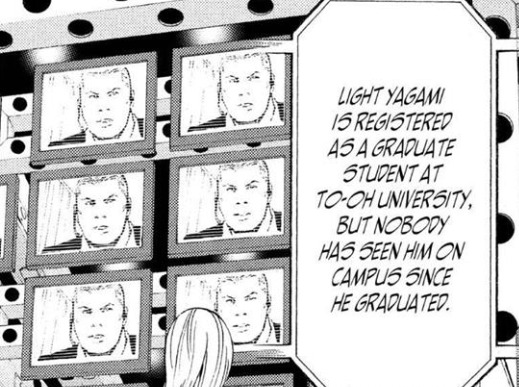
First off, he finished his undergraduate college education. This is a 4 year program, so from spring 2005 to spring 2009, this is part of what keeps Light busy. The other is his two jobs as Kira and as L, each of which must have eaten up a good amount of his time. And yet, Light did at least a minimum of socializing as well:
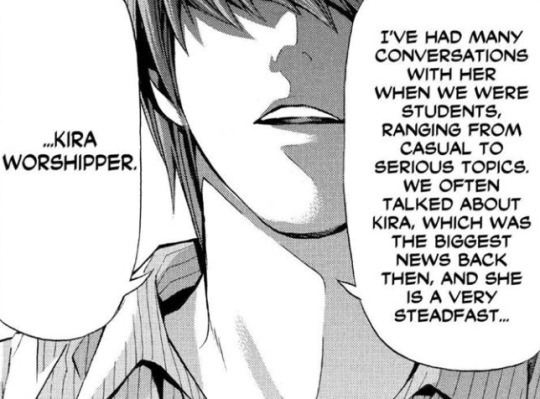
In the first arc, Light and Takada date for exactly two days and knew each other for maybe a month. There isn’t any space for them to be having these in-depth conversations here - it makes much more sense that Light smoothed things over between them after returning from confinement. It’s not like him to leave a blemish like him cheating on and then ghosting Takada stand uncorrected. It appears they became friends afterwards and only fully lost contact when Takada graduated, around a year before Light did (since she didn’t miss a year due to being a Kira suspect)…. This just goes to establish that during the majority of the time-skip, Light absolutely does keep up his charming good boy public image.
He also keeps Misa reasonably happy - though he does not show her any overt affections, he doesn’t neglect her to a degree she’s uncomfortable with and it’s canon that they are sexually active together. (Elaborations: here and here).
I’m bringing all this up immediately because there is often an assumption that the Light we see the most in the second arc is fully reflective of his attitude during the timeskip, which I think is demonstrably untrue.
Nevertheless, it would also be wrong to say Light didn’t change at all.
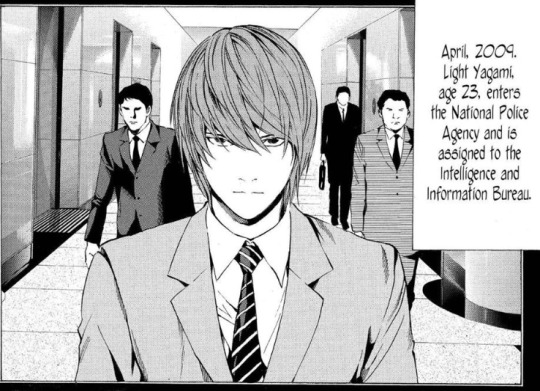
For one, obviously, he gets a job. Contrary to popular opinion, Light’s work is NOT just being on the Kira Task Force. When the second arc starts up properly, he’s already been working on the information bureau for 6 months. And this is canonically not just a cover as Light mentions work from it that he was involved with:
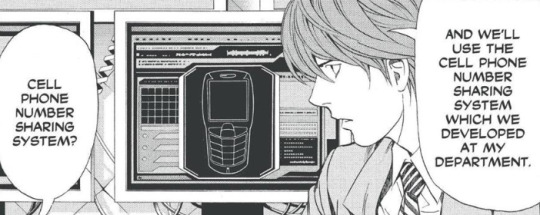
So this brings Light up to 3 labor-intense jobs - NPA, L, Kira. Even with task delegating, that’s a lot of work. If there’s just one word to describe young adult Light it’s simply ‘busy’. He’s just so busy.
The other thing that notably changed is his relationship to Soichiro. This change took root during the Yotsuba Arc and spans further and further now. Though Light still looks up to his father, he is no longer hesitant to talk back to Soichiro - likewise, Soichiro often defers to him through this arc. The two of them have become adults of equal standing by now. Soichiro is no longer the unquestioned patriarch of the Yagami family.
Now, there isn’t a lot of space to examine Light’s adult daily life demeanor in, but the image he gives off in the few scenes we get is that he’s become a more serious and stoic person over his years of being busy and living a double life. The double life aspect is especially highlighted in the brief Yagami family scene.
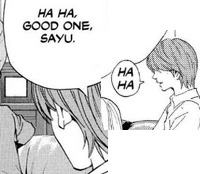
Though we see Light laugh along with his family, his eyes are obscured in both instances. With Light, this is classically a visual cue towards emotional conflict rather than plain lying. The issue here isn’t that he’s faking it, the issue is that his double life existence is taking some amount of mental toll on him.
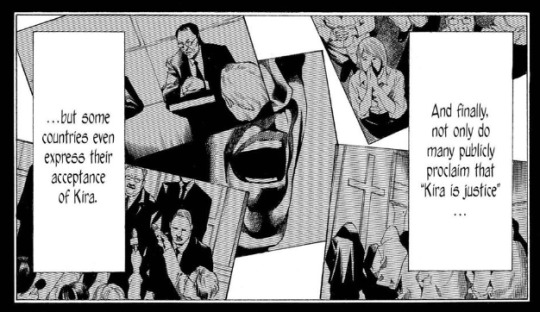
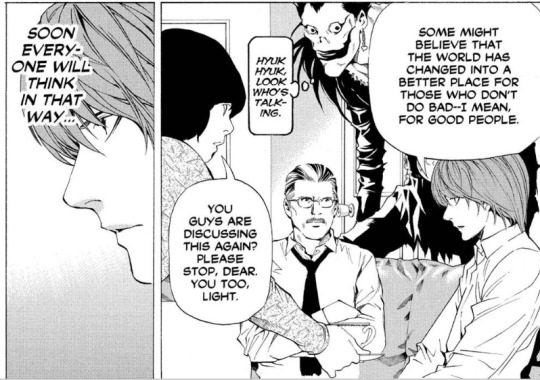
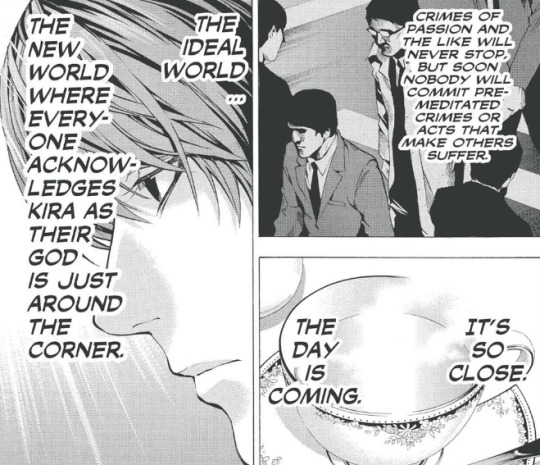
At the start of the second arc we are introduced to the setting information that Kira has been gaining more and more wide-spread acceptance across the globe. Yet the Yagami family stands firmly against Kira, not exactly to Light’s delight. In the end, his family members are the prototypical ‘good people’ that he’s making his new world for in the first place. I’ve discussed ad nausea that Light desires his father approval, but his sister’s and mother’s opinion matter to him as well. Above all other people, Light loves his family. Five years of playing charades and listening to them vehemently disagree with his actions have created a sense of emotional disconnect though, which I think is visible in his vacant expressions during this scene.
Since Light isn’t currently facing any thrilling challenge, I get the feeling that his mentality during this timeframe is a sense of ‘just a bit further until….’. He’s not living in the moment so much as dismissing the moment as temporary inconvenience on his quest towards the ideal he is striving for. (Which isn’t to say I see him as totally emotionally absent. This is just the underlying current.)
And that’s where we have Light at the end of Volume 7. And with Volume 8, he is immediately tossed into great emotional peril with Sayu’s kidnapping. This would be the first big segment you’d need to cover for second arc Light, but it’s already been written out brilliant by casuistor in the second half of this post. The bottom line is: Light changes all his plans to his disadvantage because he loves his sister and wants her safe, hurray! This is relevant to every arc Light really, loving his family is a big constant with him.
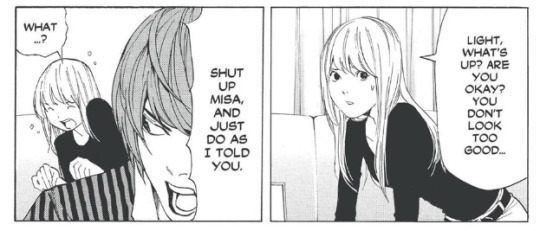
How much this all stresses him out is evident in him getting loud and abrasive, which isn’t much his usual behavior. (Again, I’d argue Misa seems surprised by this outburst more than anything - I don’t believe this has been a pattern between them at any point during the timeskip.)
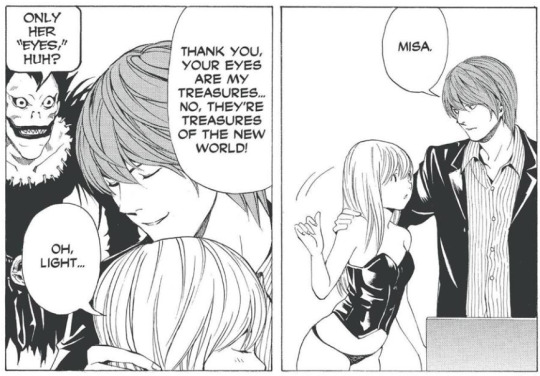
Especially since he goes back to being smarmy as is default with her once the threat to his sister is dealt with.
The other big thing that happens in Volume 8 is obviously him meeting Mello and Near, who are the ones reintroducing struggle into Light’s stagnant life.
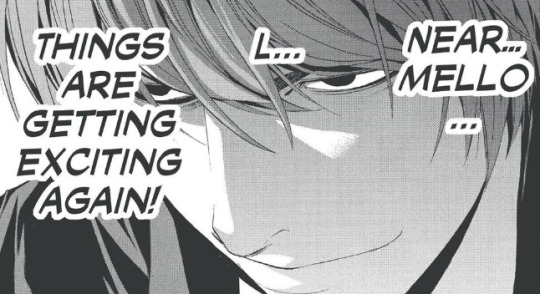
The meeting with Near immediately evokes the tension of a battle with L for Light - for Mello, the association doesn’t come until Sayu is out of immediate danger. Either way, for the time being the presence of these two kind of anchors Light. Having something to fight and schemes to do to keep his brain actively engaged tends to be something that makes him thrive.
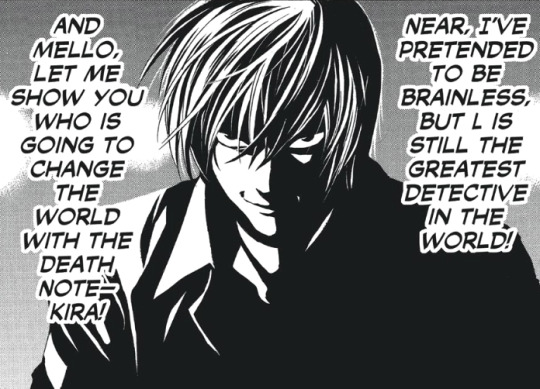
It’s cool that he himself points out how thematically Mello and Near are challenging him on two different facets of his existence. The fact that it’s a challenge is also what sets this apart from Light vs L in the first arc. Though Light hadn’t initially known it, back then L was the established force and Light was the newcomer and challenger. Now Light is established in both areas and Mello and Near are the ones attacking his existent positions - that’s why he views them as roadblocks to outplay rather than as nemeses. He views himself, from the get-go, as the person with the upper hand - this brand of confidence is only possible because the timeskip existed and made Light get used to this as status quo.
And this about sums-up Light in the first half of the second arc. It’s important to note that as far as Light characterization is concerned the second arc really does segment mid volume 9. His father’s death is an event that changes Light significantly on every count.
I wrote it out before, so in the name of not getting super repetitive, here’s the key elements of Soichiro’s death as far as Light is concerned.
It was not what Light planned. He wanted to kill Matsuda, he never even considered his father would volunteer.
Soichiro dies while expressing happiness that Light is not Kira - thus cementing once and for all that Light will never and can never attain his father’s approval that he yearns for.
Soichiro’s statement also implies that he still had doubts about Light’s innocence, even after mock-shooting him in the face and working alongside him for years. Light also learns his father never trusted him fully.
Basically everything Light wants from his father is negated and denied and then Soichiro is dead, leaving Light with no way to rectify things.
We’d established in the early paragraphs of this that a lot of Light acting as Kira was a matter of waiting until his family approves. Soichiro’s passing now makes this ‘until’ an impossibility. And that hurts badly.
Light deals with this by rationalizing everything to the n-th degree. He focuses himself on killing Mello during his father’s death to push the emotions as far away as possible and after that tries to cut himself off from his father emotionally as much as possible. This includes being avoidant to the rest of his family who remind him of the cocktail of unresolved emotions he has simmering below:
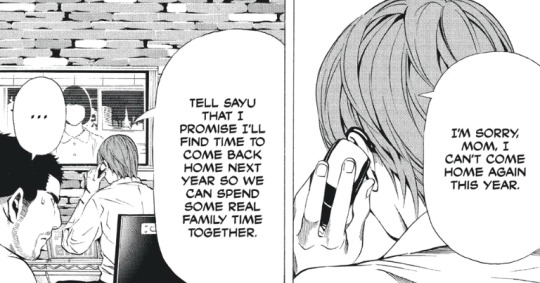
And then changes in his rhetoric and candidness about his thoughts are also immediately apparent. I feel like I cap this scene in every second post I write but it’s simply too relevant to ever be left out:
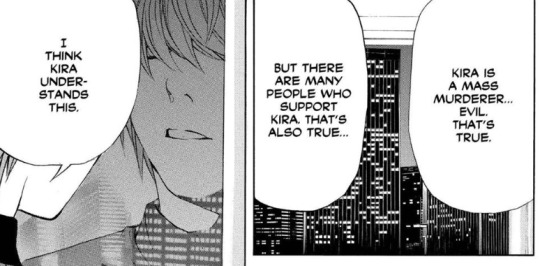
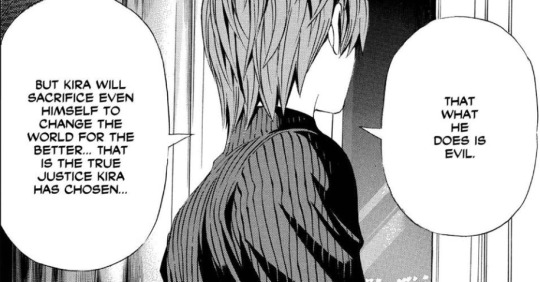
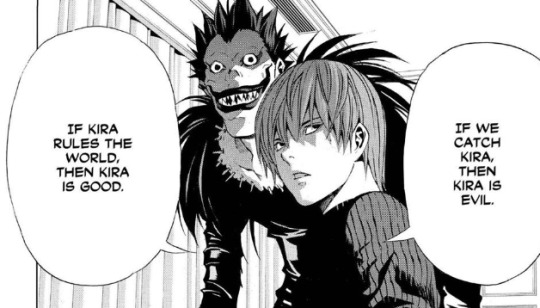
Again, we’re dealing with the hidden eyes visual cue that usually indicates that Light is saying the truth or is very emotionally conflicted about what he’s saying.
So here we have Light fully verbally acknowledging Kira’s evil-ness, to the world, to himself. Soichiro always thought of Kira as evil and how badly that wounded Light is one of the key segments early in the first arc. Now, Soichiro’s stance is eternal, because Soichiro is gone. Light has to acknowledge it as unchangable fact - so he focuses his rhetoric on the idea of sacrifice once more.
This little speech isn’t for the sake of the task force members, it’s Light’s answer to his dead father; Light re-convincing himself of his whole scheme.
None of these are brand-new thoughts for Light, but the timing and intensity with which they surface here is noteworthy.
(Side Note: from this point on, the usage of the hidden eye cue for Light changes a little - up until here it’d been used pretty much exclusively for Light being emotional. Now it is also often used when we see the scene from Aizawa’s perspective, symbolizing his distrust of Light - how he feels he and Light literally cannot talk eye to to eye because Light is lying. The inconsistency in the visual language is kind of annoying, but ah well.)
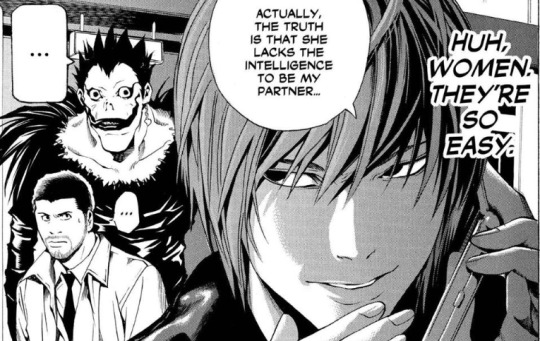
Further, Light loses his qualms about going against Soichiro’s morals in front of the task force. Now that there is no father there to judge him anymore, he doesn’t put too much care into keeping up appearances. Where in the Yotsuba Arc Light had made plenty clear that he’s his father’s good son who would never use people, he just… totally gives up on this now. Though in front of his father Light always acted out that he and Misa are an actual couple, he now cheats on her without so much as a feigned hesitance.
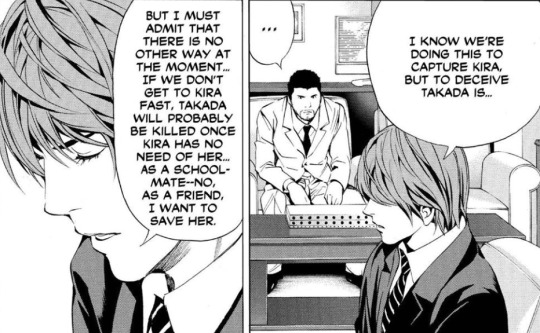
His excuse regarding Takada is half-hearted at best as well. Of course, this in part just relates to Ohba not putting any care into writing women or people’s feelings about women. But on a solely in-universe level, this is a notable shift in how manipulative Light lets people see him as.
The rest of the task force simply does not matter to him as more than mere pawns - their opinion of him is only important when it comes to threat level assessment. Light’s actual morality chain is gone now.
Light’s characterization during this time-frame is a little tough to talk about because there isn’t a lot of added value, if that makes sense? He’s the Light we know but less. His character change isn’t defined by new traits emerging so much as old traits falling away: Light doesn’t joke around anymore, Light doesn’t bother to hide duplicitous nature as much anymore. And notably, Light doesn’t really get emotional key moments anymore either.
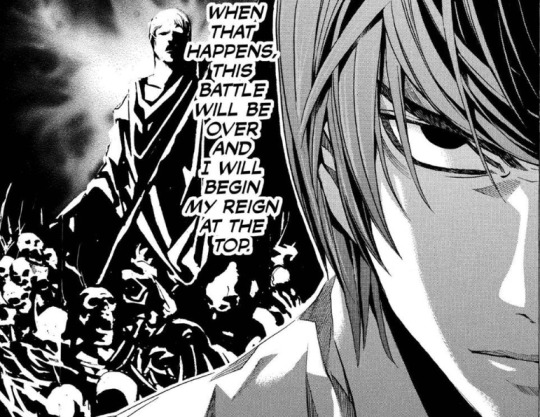
He’s mostly just… this. He’s laser-focused on his plan and his victory while pushing aside any personal elements.
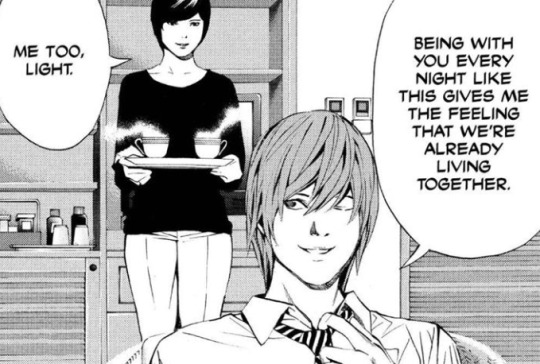
Only with Takada, he amps up the charm again and acts more like his first arc self, but that’s not a positive statement to their relationship.
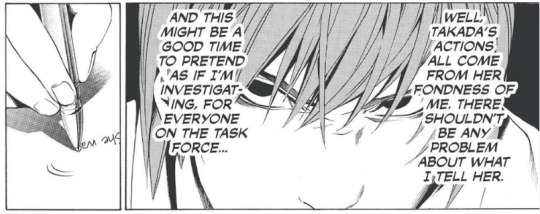
To Light, this is solely functional rather than relaxing. He was going to kill Takada along with everyone else who knows of the notebook right after the 28th, rather than keep her around for use. The only one who would have survived this rampage would have been Mikami, solely because he has the eyes and that is still useful.
And with all of this as our baseline, we move into the finale.
Going into the warehouse, Light is, above all, overconfident. In his mind, he’s won before he even sets foot into the Yellow Box.
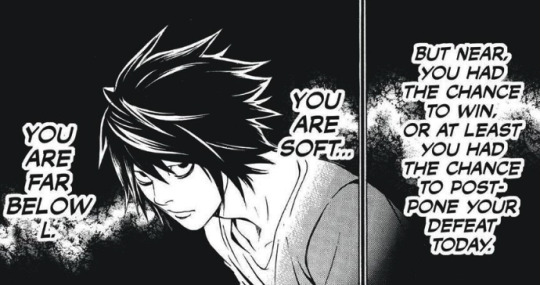
When he unfavorably compares Near to L, he’s in truth saying more about himself and his own mindset than he is saying about Near. He took L more seriously, not because L was better, but because he himself was more alert and aware of the possibility of failure. Earlier in the arc, Light even refers to Near as ‘worse’ than L on the threat-scale... He’s lost all of this now. The level of detached scheming he has reached after his father’s death is to the detriment of his maneuvering ability.
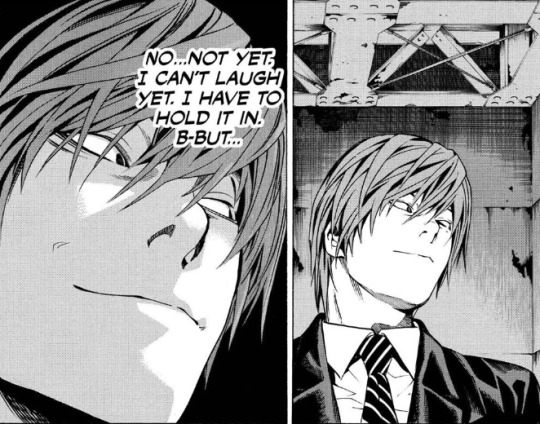
Light now relies on the fact that he’s the established power and views himself as inherently victorious - though Light has always been arrogant, he used to not fully underestimate people this way. He has become complacent in his arrogance - I do think that is related to how dead inside he is generally, too.
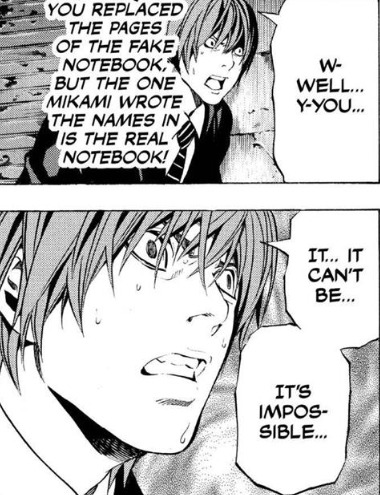
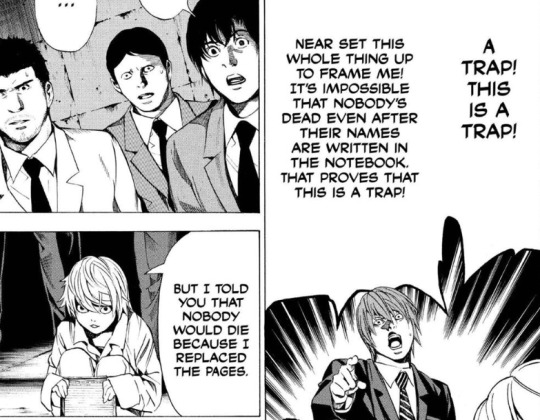
So when it turns out that he has in fact been outplayed, he takes it harsher than he ever took any set-backs before. Instead of taking reparation measures immediately, he reacts with disbelief and badly thought out excuses.
Light is fully caught off-guard by his own failure.
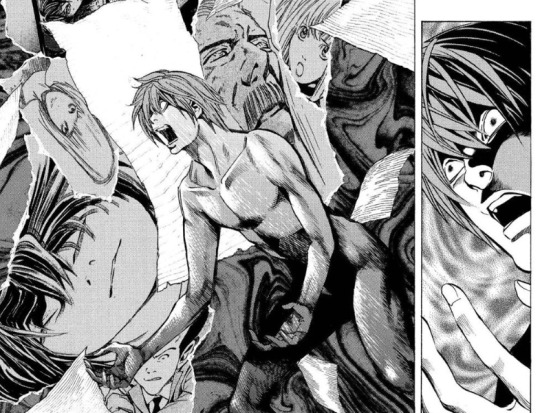
He is laid bare in front of everybody. Light has spent the last five years consistently lying to everybody around him, but now he is proverbially naked. This panel uses the same visual language as when Light regained his memories at the end of the Yotsuba-arc. Here and there, a split-up Light becomes more himself. There, the literally memorywiped Light got reunited with his full plans. Here, Light’s masks fall away and he’s only himself in the eyes of himself and the world.
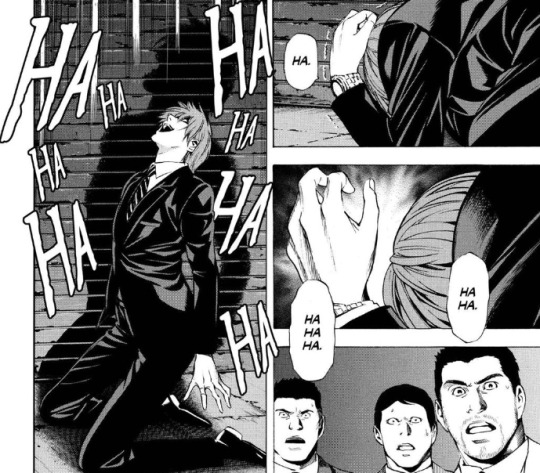
Sometimes all you can do is laugh (tm).
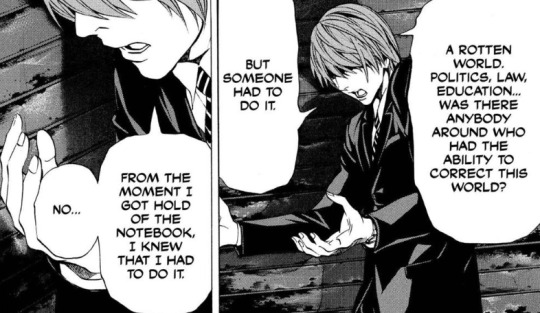
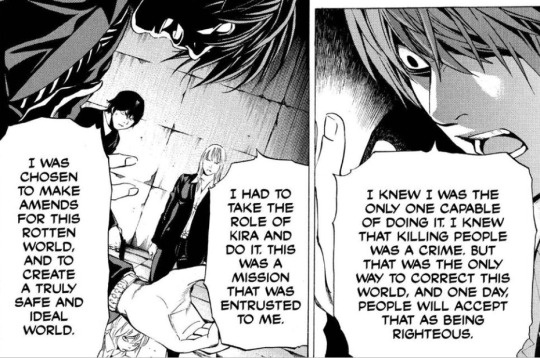
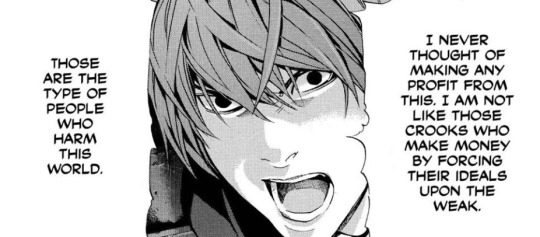
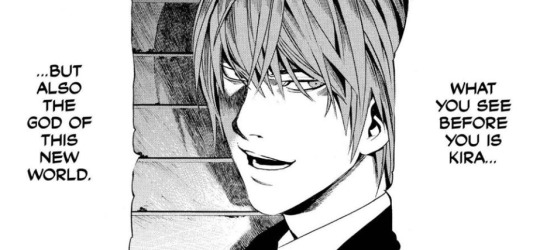
Now Light finally gets to lay all the justifications he’s always told himself about his actions as Kira out in the open. And this time, maybe for the first time ever, literally every part of him believes in it. Now that everything has fallen away, this self-justification is literally all that Light has left and he’ll cling to it like a drowning man clings to a log of wood.
I think this is really the moment where Light ‘comes together’ so to speak. Masks and excuses conflate with the person, become one on every level.
For a large amount of the second arc Light has been driving on scheme-y autopilot but now his heart is fully in it once more. There is no more ‘until’. He’s justice now, he erased the last fraction of doubt now.... and it doesn’t help him.
Light is fully unified as himself for the first time.
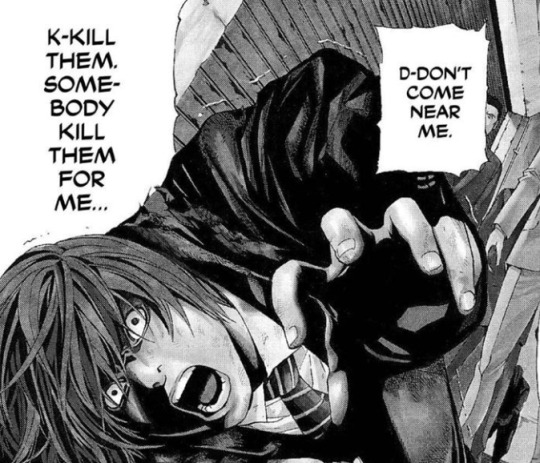
And he’s also completely alone for the first time.
His entire life, Light had people look up to him. He’s always been adored. There has never ever been a situation in which there was truly nobody on Light’s side - not in all of his 23 years, not until now.
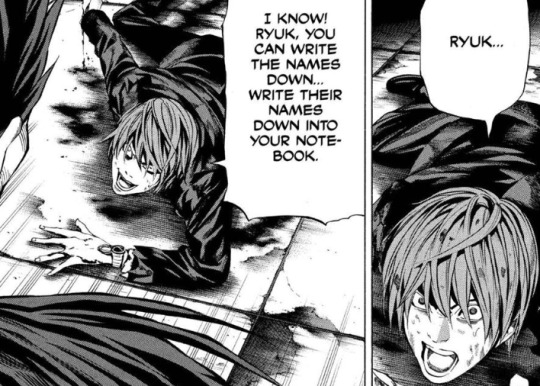
And that’s the one thing Light can truly not believe. The one certainty in his life has always been that people look up to him. Now he’s on the floor, crawling in his own blood, and nobody is his ally. He can’t and won’t believe it.
And that’s why he asks Ryuk for help. And that’s why Ryuk kills him.
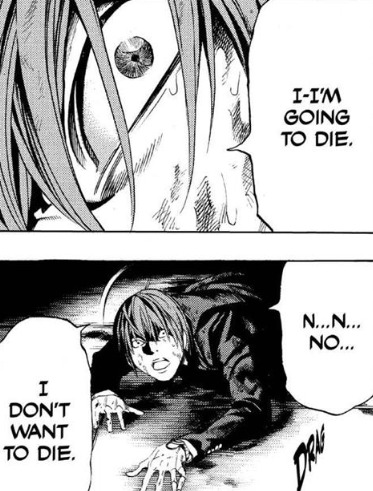
At the very end of his life, Light is a scared child. He comes full circle from the time he found the Death Note and thought he’d die for accidentally using it - he’s back to this fear of death, only this time it’s worse. Then, he had hope to change the world in his days before death. Now, he has changed it, and he realizes that’s not enough. Leaving a legacy is not simply not enough.
Light wants to live.
All these years of feeding himself the narrative of self-sacrifice for the greater good... and at the bottom line below all that, what he really wants is to live.
Too late for that.

#somniumme#Death Note#light yagami#i spent so much time on this#idk if i am actually happy with the warehouse segment#but i'm DONE#thoughts#luna thinks
295 notes
·
View notes
Note
"Warm water against sore muscles" for Rhys and Dorian for the DWC?
Finally! It only took me 6 months. Almost to the day. Apologies about that.
***
-1-
“One would think an archer wouldn’t end up with so many bruises. Aren’t you better from a distance?” Dorian teased.
Rhys reached up and grabbed Dorian’s neck, bring his face close enough for their noses to touch. “Of all people, you should know I can be equally as effective up close.”
The mage’s hand found Rhys’ wrist, giving it a squeeze as he tipped his head to kiss his lover gently. As the kiss broke, Dorian pressed his lips to the pulse point of Rhys’ wrist. “I’m well aware, Inquisitor.”
Without loosing Rhys’ hand, Dorian pressed another kiss to his temple. He could see the moment of fervor fade from Rhys as that little action freed the inquisitor from the need to the mighty hope of Thedas. An exhausted man sank back into the water, his hand still strongly grasping Dorian’s.
Taking up the cloth on the stool near him, Dorian dipped it in the water, squeezing out the excess. He rubbed the cloth against the bar of soap, one handed, because he refused to loose his lover’s hand. It was a small concession. One easily accomplished. With the cloth, he tackled the dirt clinging to Rhy’s long neck and ears.
“Your hair is getting a bit long on the sides,” Dorian announced.
Rhys only hummed incoherently as the mage pressed his fingers against the other man’s scalp amidst the bubbles of a thick lather.
“I will trim the sides for you,” he teased.
The bathing man’s body shook with laughter. “Will you?” he teased, peeking over his shoulder at Dorian.
He gestured at himself. “I’m well practiced in the use of a razor, I’ll have you know.”
“That you are, dearest, but as I recall the last time you attempted to translate those skills to me, I had to shave my entire head again.”
“You were being over dramatic,” Dorian replied haughtily.
Rhys grinned and stared at him with a challenging look. The mage grabbed the wrapped handle of the copper bucket and poured it over Rhys’ head without warning. His laughter echoed in the small room, warming Dorian’s heart anew. Rhys flipped his head, sending a trail of water around the room and drenching the mage’s blouse.
Leaning back in the water, Trevelyan’s gaze moved over his lover. “Told you that shirt would be nothing but trouble.”
“You’re just a randy cur,” Dorian replied. “Sit up.”
“While that maybe true,” Rhys agreed, sitting forward, “it doesn’t change the fact that you are beautiful.”
“Flattery will get you nowhere.”
Another relaxed rumble of glee wandered through Rhys and spread into the room. “Oh, I know how untrue that statement is. Would you care for me to demonstrate it again?”
The corner of Dorian’s mouth twitched as the memory of that night flooded his mind. He certainly wouldn’t turn down the chance to be worshipped like that again. “You’ve been on the road for weeks, picking fights with Maker knows what. And we both know that the energy you’re feeling right now will fade as soon as you climb out of this water. So, let me bathe you. Then we’ll see what happens.”
With a sigh that sounded like it was relieved, Rhys leaned more heavily against his knees. Dorian knew that the inquisitor was well-versed in pleasure—in and beyond the bedroom—he’d seen many of the masks that Rhys donned for different purposes and perrsonages. He knew very well, that the randy cad was just one of the many roles that Rhys was capabale of adopting, often without even realizing it. Dorian also knew that he was one of the few that got to see the masks fall away utterly, but those times were incredibly rare and most often occurred when Rhys’ exhaustion or frustration piqued to inhuman proportions.
Discarding the cloth, Dorian pressed his soapy hands over Rhys’ bare back, kneading at tight and tired muscles. As an archer, his back, shoulders, and chest were the most taxed in combat, which was way Dorian concentrated his attention there until he felt some of the tension ease. He could never work all of it out; the younger man’s stress level was unnaturally high. Carrying the hopes of tens of thousands of people could have that effect on a person, especially when that person never asked for any of it.
Taking up another pitcher, Dorian poured the hot water in a slow stream that chased away the suds and grime in rivulets that ran over and between thick rope-like muscles. He pressed his free hand over the tawny flesh helping spread the ease and effect of the water. Rhys’ head dropped against the arms propped on his knees and a loan moan carried through the room.
“Lean back,” Dorian all but whispered. The inquisitor complied. Pressing his hand over Rhys’ shoulder, Dorian set down the pitcher, grabbed the bar of soap, and moved closer again. His embrace allowed Rhys to rest his head back against the mage’s shoulder, which he did. Lathering his hands again, Dorian pressed them over the inquisitor’s chest in delicate caresses interspersed with kneading gropes. Rhys’ hand guided Dorian’s mouth to his own, teasing his lips with tender kisses.
The mage didn’t pull away from either duty—kissing the man in his arms delicately as he pressed his hands over his muscular torso. The softness of Rhys’ kisses were honest. There was no guile in them.
-2-
Rhys felt guilty for just lying there as they kissed, savoring the feel of Dorian’s hands on his body, chasing away the sand, grime, and tension. But his lover was right, he was exhausted to his very marrow. It was the kind of exhaustion that only faded, never completely leaving him. He was all but certain that feeling would not leave him until they were able to completely close the tear in the sky, which none of them were sure was even possible.
Licking at Dorian’s lips, Rhys tried to blank those thoughts and uncertainties from his mind. This was not the place for that; not the time, he told himself.
He groaned, low and deep, as Dorian’s hands pressed down over his abs. A part of him wished they might sink lower, but the didn’t. If he were honest with himself, he probably couldn’t please Dorian in his current state no matter how he might wish to do so. The kisses ended far too soon for Rhys’ tastes. But the sensation of the hot water enveloping him lilke a second skin soothed, not only the sore muscles in his body, but also served as a balm to his tired mind and soul. The slow stream of it rinsed away so much more than soap and dust.
Dorian slipped out of his physical grasp, tending to his legs, even massaging his feet. It was the kind of pampering that ignited his guilt. Dorian might have been physically safer here, but that just left him to the torment of worry and imagination. Rhys’ lips tightened with the realization, but he couldn’t reconcile it still—his desire to keep Dorian safe and wanting him at his side at all times.
“I love you,” he said in a rush of thought.
A smile curved Dorian’s mouth. “And I you.” Lowering Rhys’ foot back into the water, Dorian moved closer, looming over him before he pressed a kiss to the inquisitor’s forehead, then to his lips. The kiss remained gentle even as it deepened, as if either of them could communicate the depth of their feelings for one another in that simple exchange.
Rhys’ gasp of surprise broke the kiss and brought his gaze back to Dorian’s. The mischeivous grin on the mage’s face told all. His hand stroked the length of Rhys’ shaft, and while desired stirred beneath the touch it did not rage. Exhaustion placed a limit on the ranger’s desire for performance.
“Come,” Dorian whispered against Rhys’ mouth. “The water is starting to chill.” His kiss, equal parts inticing and gentle, pulled Rhys to his feet.
Again, his lover’s hands were all over him, guiding the drying cloth over his tired frame in a languid way that went far beyond utility. Once Dorian was satisfied that not a single stray drop of water remained, he took his lover’s hand and led him to the massive bed with the fluffy mattress that cradled the body. Pulling back the sheets, he looked over at Rhys. “In.”
The simple order earned a laugh from the inquisitor, who complied. “You know I can’t sleep worth a damn alone,” Trvelyan argued. The embrace of the mattress and the pillow proved more than his tired body could fight at the moment. But he needed Dorian in his arms.
“I do.”
Rhys watched as Dorian stripped out of his clothing and rounded the bed. Crawling in from the other side, he closed the distance between them. Lazy kisses traded between them, until Dorian rested his head against Rhys’ chest, giving him leave to fall asleep. Even so, he fought it off for a bit. His fingers traced lines along Dorian’s back and neck. At the edge of sleep, hallucination took over. This moment right here, this could be their life … together.
A smile pulled at Rhys’ lips as consciuosness finally slipped from his grasp entirely, guiding him into a most tempting and tame dream.
#DADWC#Dragon Age Drunk Writing Circle#Rhys Trevelyan#Dorian Pavus#Fluff#Badger Scribbles#midnightprelude
10 notes
·
View notes
Text
‘The Absent Father and Spider-Man’s Unfulfilled Potential’: Rebuttal Part 2: Introduction Continued

Master Post
Fettinger continues that in his civilian life Peter’s life was a directionless disaster.
This is again profoundly unfair and untrue.
Peter’s life lacking direction was directly attributable to the life he led as Spider-Man.
And yet Peter managed to leave home, later get a place of his own, graduate collage, got married and was attended grad school on three separate occasions.
He only failed to finish grad school the first time around because he made the smart decision to put things on. He was struggling to juggle the increased workload, his social life and Spider-man activates. He passed the first year through the skin of his teeth and was aware the second year would be worse. At the time he’d gotten into a new relationship with the Black Cat who had been severely injured following a battle, recovering very gradually. Peter was also trying to help pay for her medical expenses. Felicia was also a reforming criminal who’s prior attempt at going straight had failed. In order to keep Felicia on the straight and narrow, in order to help her recover and build a future with her it made a lot of sense for Peter to put his education on hiatus whilst he got his affairs in order.
A quick successions of attacks upon his personal life occurred during his second attempt to complete grad school meaning he naturally dropped out again. These attacks were not his fault. Your best friend trying to kill you, your parents coming back to life, your aunt entering a coma and you having a mental breakdown all BEFORE your clone shows up and your wife gets pregnant are incredibly legitimate reasons to drop out of collage.
Only his third attempt was arguably illegitimate as he dropped out off-panel during the Mackie/Byrne run.
Even this can be defended in-universe on the grounds that his aunt May had recently been revealed to be alive, thus justifying time off. Soon after he landed his dream job. Why bother finishing school when you have the occupation you wanted. Why try to juggle that job, your family and your studies all at the same time if it is unnecessary?
Moreover Peter’s dropping out was simply one of the many, many, many, many, many out of character moments that pervaded that run and the stories intended to lead into it. Fettinger himself would tell you that so they really shouldn’t count.
Not to mention, the series never actually confirmed for us if Peter did or did not drop out. He was attending grad school and then a time skip later he wasn’t. Realistically given how a Graduate School programme can last years he likely hadn’t finished earning his degree, but again that wasn’t confirmed for us.
At the time Fettinger’s essay was published, Peter had also taken on a job as a school teacher, joined the Avengers, had made (successful) efforts to reconcile with his wife, acclimatise his Aunt May to his superhero identity, was making more time for both ladies in his life and was working to try and help rehabilitation of some of the criminals he had captured.


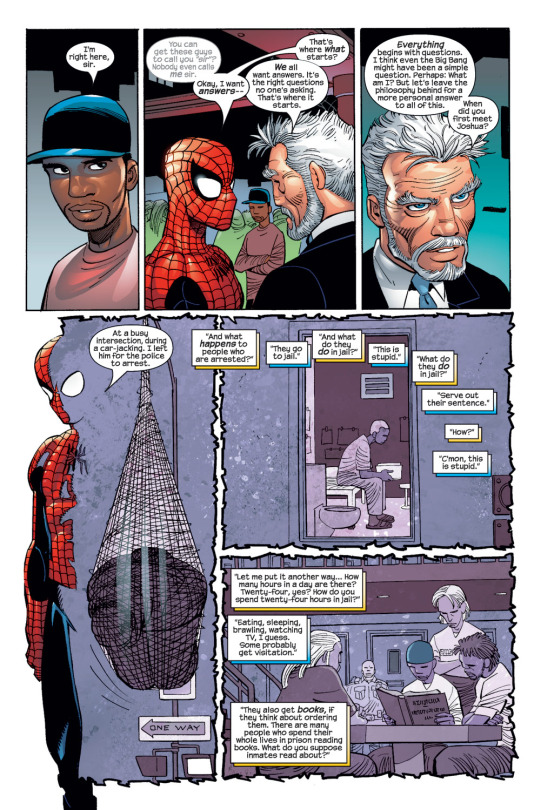
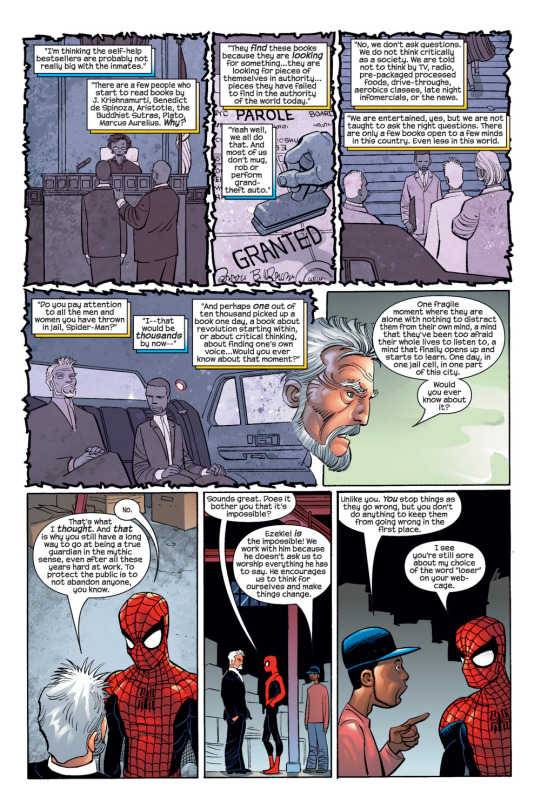

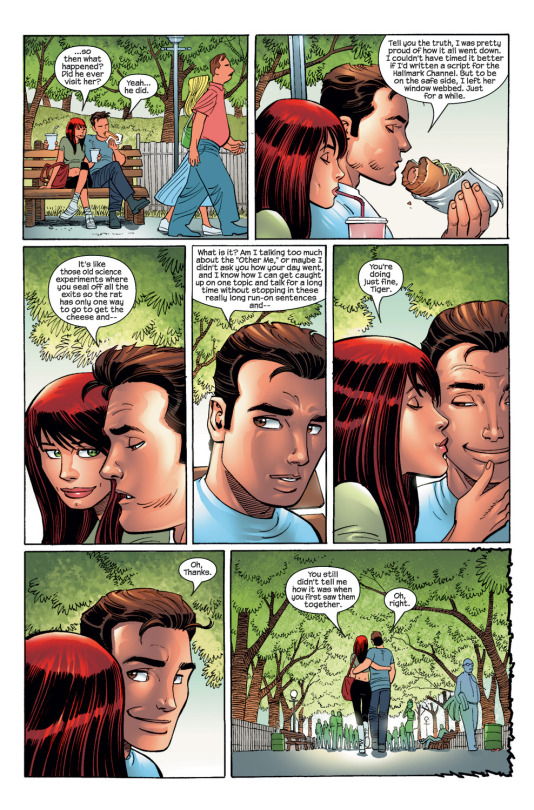


Hardly ‘directionless’.
This is to say nothing of how quite frankly in the mid-2000s MOST people around Peter’s age (25-30) didn’t exactly have a clear cut ‘direction’ in their lives and this was even more true in the consequent decade.
I think this is a criticism equitable to incredibly old-fashioned thinking from older people wagging their fingers at ‘the younger generations’.
Fettinger continues by saying ‘His scientific prowess should have made him a peer of Reed Richards and Tony Stark, men who became prosperous and/or well-respected for their civilian achievements, but he seems to have squandered his potential. These men are not immune from the ravages of human frailty, with alcohol being Tony’s personal demon, and Reed’s neglect of his wife Sue nearly driving her into the Sub-Mariner’s arms more than once, but both have succeeded in balancing superhero careers, satisfying intellectual pursuits, and maintaining some semblance of an organized personal life.”
This was another ‘what the fuck moment’ for me when re-reading this essay.
Honestly, as someone who loves this character this statement made me angry and even made me question if Fettinger ever actually LIKED the character himself.
First of all, have Reed and Tony even succeeded at what Fettinger claims they have?
Tony’s life has often been pretty fucked up. Circa Civil War he and Reed were the pariah’s of the super hero community. Tony’s alcoholism had brought him and his company close to ruin more than once. Reed and Sue had separated in the past more than once and at one point Reed but their son Franklin into a coma. And both men have had their lives made exponentially more difficult by being heroes.
That’s not a ‘semblance’ of an organized personal life. Just because they’ve managed to invent things and be superheroes at the same time isn’t proof to the contrary.
More importantly, even if we accept Fettinger’s claims about Reed and Tony, this is a gigantic false equivalency.
The central reason that Peter has failed to balance his super hero career, intellectual pursuits and an organized personal life is because it is impossible!
Fettinger, despite being this so-called authority on the character is demonstrating a huge misreading of the intent behind Spider-Man’s creation.
He was created specifically to be a more realistic super hero. In that context his superhero life wasn’t allegorical for a real life job or responsibility. Rather the point was to explore how a (relatively) realistic person would believable handle being a hero. This is why Peter initially seeks to use his powers selfishly and needs to learn to use them altruistically.
In other words, Peter has to deal with all the stuff we deal with in normal life in ADDITION to being a superhero.
In real life, your job or family might be the most important thing you do. But for Spider-Man they are inherently secondary.
They are just as important to Peter as they are to anyone in the real world but he also has a huge burden even greater than they are to manage.
This is literally the central conflict behind the character. The constant struggle to juggle real life responsibilities against this grander calling.
You might argue he’s the equivalent of a cop, fire fighter or soldier, but that’s not true. There are similarities rendering those roles appropriate allegories. But that allegory breaks down when you consider he is unpaid for his services, has to maintain secrecy whilst performing them and still needs to earn an income. Imagine doing your job but then also being a cop/fire fighter/soldier who has to be potentially available 24/7 as well.
Reed and Iron Man were never treated with this degree of realism in mind. None of the classic Silver Age Marvel heroes were. Daredevil developed a similar (or arguably greater) degree of realism later under Frank Miller’s pen. And noticeably he too has struggled to find a balance in his life just as Peter has.
Even if we ignore this metatextual argument, the in-universe do not corroborate Fettinger’s point.
I’m no F4 or Iron Man expert so feel free to correct me on anything I get wrong.
But last I checked, circa 2006, Reed and Tony categorically didn’t operate as heroes the way Peter did.
Reed and the other F4 were not crime fighters, and never were. They might deal with crises that arose if they were made aware of them somehow. But they weren’t keeping an eye on organized crime or the drug dealers moving onto the local street corner. They weren’t actively going on regular patrols seeking out petty theft, car jackings, alley way muggings, bank robberies, etc.
IIRC nor was Tony. I think at most he was more concerned with industrial sabotage, the activities of international criminals like the Mandarin, foreign powers like the Soviets or larger scale crises. It wasn’t like he (with or without the Avengers) was responding to every bank robbery in NYC or sticking it to the Maggia or Kingpin.
Spidey though was going out almost every day and night specifically to seek out crime and directly intervene in it. He wanted to avoid anyone else losing their ‘Uncle Ben’ to a burglar because he was passive or complacent.
That didn’t just entail living his life and intervening if he happened to bump into any crime. He was proactive in actually going on the prowl for threats he could help resolve.
Fettinger is also disgustingly unfair because he’s neglected the context surrounding when Reed, Tony and Peter became heroes.
Reed and Tony were ALREADY financially secure and scientifically accomplished men in their late-20s-late-30s when they became heroes.
They’d already figured out effectively methods of playing the game of life, they already mastered scientific skills and had a foundation of accomplishments and money that could make their superhero lives easier if anything.
It’s simply easier to maintain those things as a super hero when you start off that way.
In contrast let’ consider Peter Parker.
He was 15 when he got his powers. He was at most lower-middle class and his family didn’t have much money. Unlike Reed or Tony he had an elderly, health challenged relative to provide care and support for. He was still in school and whilst scientifically gifted didn’t yet have a full education in any scientific field. To get one he’d need to attend college but his household wasn’t able to afford that even before the breadwinner (Ben Parker) died. Therefore Peter didn’t just need to pass high school but earn a scholarship simultaneously. And as for his social life he’d never really had any friends and was thus more poorly practiced at maintaining friendships or romantic relationships than even his fellow school peers. Even if he hadn’t been he didn’t have the same level of experience with such things Reed or Tony would have had due to his age. He wasn’t done growing up yet. Granted Tony wasn’t exactly wise in the ways of serious relationships, but he nevertheless knew how to play the dating game. Reed on the other hand was engaged (or on the cusp of it) when he got his powers.
These were men who had figured out a lot of life, accomplished a lot and grown up long before they began superhero careers.
Peter was starting out with MASSIVE handicaps compared to them.
He needed to simultaneously:
Figure out how to be a grown up
Do that faster than his peers
Care for his sickly aunt
Grieve his uncle
Figure out how to navigate the social scene of people his age, including the ways of romance
Maintain his school grades
Earn a scholarship
Educate himself in various scientific fields
Become the bread winner for his household or else risking them losing their home and May’s access to the medicine that was preserving her life
THEN he needed to be a superhero on top of that!
And what did that even entail anyway?
Figuring out how his powers worked and their limits
Figuring out how to fight
Risking his life against people who regularly wanted to kill him
Dealing with people who went out of their way to target his life, sometimes having that bleed over into his civilian life
Maintaining secrecy as best as he could out of fear of being imprisoned or even killing his aunt due to the shock
Dealing with some people who were actively trying to uncover his identity
For most of his career, never having anyone to mentally relieve his burden by sharing his secret
Figuring out how to seek out crime, track crooks, gather information, the structure of criminal organizations
Fending off deadly and often more powerful opponents
Being hated and feared by most of the general public, authorities and fellow heroes.
Fighting alone most of the time
Created and maintained his own equipment which he did out of his own pocket, despite the hit it took to his finances
Being accused of various false crimes by the press, public or authorities
Helping his boss smear his name because he was the only reliable means of income Peter had
NOBODY could deal with all that. It’s a miracle Peter merely maintained his sanity, never mind successfully kept a roof over his and May’s heads, lowered the crime rate and successfully built a long-term relationship with Mary Jane.
Sure, some of that stuff would get easier over time, but even if other things hadn’t arose to make life harder for him, it’s still an impossible juggling act.
And unlike Tony or Reed Peter rarely had access to much cash, resources or a supportive team to help him. Those things would make all the difference if Reed and Tony were engaged in that time of superhero work.
Reed could rely upon his family to handle a crisis to help out with his latest experiment if necessary, giving him more time to focus upon other things. Tony could delegate duties in his company to staff members whilst he zipped off to save the world or alternatively could turn to his Avengers colleagues to handle a crisis if he needed to attend to important business. And obviously this support network could greatly help if Reed or Tony had any sickly relatives to look after.
With Peter everything was riding on him. Aunt Anna could help out at times, but she wasn’t a full time caregiver. He had no teammates to help bear the burden of fighting crime. Even his partnership with Felicia entailed going on patrol together, not her going out instead of him.
He had no financial security. He lived from one pay cheque to another because he had no choice. Even when he got older and didn’t need to worry about May as much being Spider-Man critically undermined his ability to maintain a 9-5 job. Hence why Tri-Corp (and later HORIZON labs) gave him flexi-hours and why he needed to take so much time off as a teacher and was basically kept around because Midtown High was just that desperate.
It’s one thing to maintain financial security as a super hero when you begin like that. It’s another story entirely when you are clawing your way up the economic ladder from a lower class position whilst being a hero at the same time.
The same thing applies to his scientific pursuits. Where was he supposed to find the time, money and resources to invent anything that’d win him accolades?
Gee if only there was a story which illustrated how being Spider-Man fundamentally held Peter back from fully living his own life…if only that story had then formed the basis for a major motion picture in 2004…
But yeah, if only Peter had a father figure all this would be a none issue.
From a certain POV that’s true, but only in the sense that Peter would’ve had some of the burden lifted from him. He wouldn’t have had to be as concerned about supporting Aunt May. He wouldn’t have had to have spent as much time figuring out how to play the social game if his Dad had maybe been around to show him (although Aunt May was there for that too so would Ben have made much of a difference?).
But it wouldn’t have meant his life would’ve been fixed and his potential unfulfilled. Because being Spider-Man innately held him back no matter what. He was never going to be able to hold a 9-5. He was never going to be able to give his loved ones all the attention he owed them because duty would inevitably call. And unless his father figure was loaded he’d have never had have access to the resources necessary to invent shit. But that wouldn’t have happened regardless of Richard or Ben Parker dying or not. Peter needed a scholarship even before Ben died, so the Parker household was clearly not well off financially.
Let’s also consider that Reed’s home and hero life are functionally one and the same. His scientific pursuits go hand in hand with the work the F4 usually do. This arguably became the case with Tony as well once he discarded his secret identity in the 2000s. Even before then, he had a much easier solution to maintaining his identity considering it would be believable for a rich man like him to have a super powered body guard and his tech would have enabled him to remotely control the armour at times to maintain appearances.
Peter had neither luxury, with his two lives only overlapping in moments of crisis 9/10.
Not to mention Fettinger’s logic here is hurt when we consider neither Tony nor Reed’s Dad’s were all that great in the first place. It seems both of them succeeded in spite of their father’s not because of them.
Basically, father or no father, if Peter had the same circumstances he’d have been in roughly the same position he is now. He wouldn’t have become Reed or Tony.
So confession time.
I began writing this rebuttal at a time when I had no access to Fettinger’ essay sans the physical book it came in. I began writing down bullet points for his consequent points.
And just as a reminder Fettinger’s ‘thesis’ for this essay is that Peter is a screw up with loads of ‘unfulfilled potential’ because he never had a stable father figure in his life following Ben’s death.
· Peter flunked out of college and even failed to graduate with his class because he forgot to take a required gym credit.
Peter didn’t flunk Grad school and he made up his collage degree by earning the SINGLE credit he needed over the consequent summer, which is entirely different to truly flunking.
It’s also got jack to do with not having a father or failing to fulfil his potential. Like around that time Aunt May was in the hospital, had nearly died and he was kinda busy saving people’s lives.
· Two attempts at post graduate education failed.
Actually he tried three times and ‘failed’ is very subjective. See what I said in earlier instalments about the stuff around the early-mid 1990s and the Mackie/Byrne era. Those were the second and third times he tried for a post-grad. The first time he never failed, he simply decided to quit for perfectly practical reasons and return later.
· He made only a marginal living mostly as a freelance photographer because until recently (remember this was written in 2006) when he became a high school teacher, he couldn’t hold a steady job.
Notice how he acknowledges being a high school teacher and yet claims Peter is ‘directionless’.
And more poignantly NO ONE can be Spider-Man and hold a 9-5.
That’s literally the entire reason Lee/Ditko had Peter become a photographer. Because they were trying to tell the story of a realistic super hero and a realistic superhero couldn’t hold down a 9-5 when he might be on duty at any time; even matt Murdock has a partner in Foggy Nelson to cover for him if needed. So they engineered a method for him to earn a living whilst still being Spider-Man, by making being Spidey the means to that end.
· His friendships often failed because he neglected them.
This is not true, his friendships rarely ever failed. When they did it was often not due to his being neglectful. Even on the instances where this could be said to be true again he had a good reason for that. He was SPIDER-MAN!
· Any success with women, including his marriage to Mary Jane Watson (who left at least once) owes more to his partner’s Job-like patience than any effort on his part (and part of MJ’s devotion to Peter may be tied up in her own relationship abandonment and hero worship issues).
It is true MJ has the patience of a saint. But so do the wives of many police officers, fire fighters, soldiers, politicians, political activists etc. And I do not necessarily disagree that MJ’s patience was a huge factor (maybe the biggest) in keeping that relationship going. But Fettinger’s wording here combined with the wider context of his prior points make it abundantly obvious that he isn’t saying Peter put in effort but MJ’s patience happened to be a bigger factor. He is saying that Peter did not put in enough effort, that he slacked off.
Which is bullshit because again, he was being Spider-Man and more importantly with MJ and many of his OTHER relationships he plainly DID put in effort and consideration. Also it’s disingenuous for Fettinger to refer to MJ leaving Peter because he KNOWS that was OOC nonsense and wrote about it. See his 2001 Year in Review from his Spidey Kicks Butt website or this site.
As for MJ’s ‘abandonment issues’ and ‘hero worshipping’ issues, let’s unpack that.
MJ’s issues weren’t about abandonment. Not unless Fettinger is referring to MJ herself abandoning her sister.
MJ was never abandoned as a child. Yes, in ASM #292 MJ claims her Dad walked out on her mother but re-read her origin from ASM 259 or Parallel Lives. It was the other way around.
So MJ literally hasn’t got any abandonment issues in the first place.
Even if you did contort it to being about abandoning her sister that’s not a matter of her ‘issues’. That term refers to the idea MJ has unresolved baggage that, if she only addressed, she’d have not been with Peter or stayed with him.
That interpretation though is BS for two key reasons. Firstly, MJ resisted committing to Peter for the longest time which was also at the root of her leaving her sister high and dry. Her staying with Peter when Gwen died and helping him was an example of her GROWING as a person and becoming BETTER, not her doing it as some kind of weird repentance for her abandoning her sister in her time of need.
Secondly, MJ was only able to fully commit to Peter when she’d laid her demons with her sister to rest in ASM #292. There was still unresolved business between them and her own father but when she settled that she was more comittied to her marriage to Peter not less.
Maybe Fettinger’s intent was that her father’s abuse of her represented a form of abandonment. Or maybe he just phrased himself badly and meant the latter point regardless. Well that too doesn’t hold up to scrutiny.
Parallel Lives shows us MJ’s issues with her father was a motivator for her to steer clear of Peter not grow closer to him.

And more importantly if MJ’s romance with Peter has anything to do with her father it’s only because Peter is so unlike her father. In her mind her father’s traits =bad. Peter, in having the opposite traits = good, and therefore attractive.
By any metric MJ’s desire to be with Peter clearly has nothing to do with any ‘issues’ she had. On the contrary her not being with him was because of her issues. This was incredibly basic and laid out. Fettinger himself touched upon it in this essay.
Now for her hero worship…what hero worship?
Yes MJ respected and was attracted to Peter partially because he was a hero. But that’s not an ‘issue’ because most women would likely have been attracted to such traits. Doctors or firemen are a common turn on for many women and Spidey’s job is analogous to that.
In truth MJ was turned on more by his sense of responsibility embodied by his heroism as discussed in Web #6 (which Fettinger cited in the previously linked to essay). MJ doesn’t want Peter to be a hero out of concern for his health but also recognizes that if he wasn’t a hero he wouldn’t be the man she fell in love with. Stories like Spider-Man the Final Adventure and the MC2 universe though prove how MJ wouldn’t fall out of love with Peter if he quit being Spider-Man.
She doesn’t have hero worship issues!
· If we didn’t know Peter was Spider-Man we would probably consider him either “brilliant but lazy?” (see ‘Spider-Man 2’) or simply a loser.
Right except we DO know he is Spider-Man hence so many of the above criticisms are totally out of line, even ignoring many of the blatant inaccuracies to them.
· He appears to be a chronic underachiever in both identities.
Yeah no. That statement ignores then recent developments in Spidey titles. More importantly it ignores the fact that to ‘fulfil his potential’in either identity he’d have to have access to things (like money and team support) that he simply lacked or else dedicate himself to one life over the other which he cannot do. It isn’t that there is something wrong with HIM it’s that the nature of his SITUATION is rarely conjunctive to success.
· Why is this? What kept him from putting the disparate parts of his life together and becoming an even greater hero?
What further greatness does he really need?
Circa 2006 he’d become an Avenger, the premier heroes of the Marvel universe. He had won a Hell of a lot of battles against seriously powerful foes. He’d saved countless people in his time an lowered the crime rate.
I’m just going to give you the gist of Fettinger’s next several points.
He basically argues that Peter has always subconsciously sought out a father figure to replace Uncle Ben.
Which is TRUE.
But he goes on to argue that the reason for Peter’s unfulfilled potential is BECAUSE he’s lacked this father figure in his life. To be fair to him and give him the benefit of the doubt he does say a positive male role model ‘could’ have made the difference and qualifies that there are plenty of people who do fine without positive male role models.
The problem is that he’s set up this whole essay by being cynically over critical, inaccurate and disingenuous about Peter’s ‘failings’.
Meaning he isn’t clearly asserting that Peter’s lack of a father merely might be the cause for his ‘underachieving’. He is clearly saying Peter is an underachiever and lacking a proper father is the reason why. It’s also disingenuous because Fettinger earlier on in the essay called out Peter as an underachiever by comparing him to womanizing, alcoholic hedonist and weapons manufacturer Tony Stark who you know...had an awful Dad!
· Fettinger lists off the difficulties of growing up in general and how supporting Aunt May and being a superhero made that more difficult. And how it’d be especially hard when doing it on your own. Which is true and a father by his side to help him would’ve made Peter’s life much easier.
But to say that the complications he faced wouldn’t exist if he had a father is asinine.
Aunt May still could have died as she did repeatedly.
There is no assurance that Peter would’ve confided the truth into Uncle Ben or any male role model in his life.
And balancing normal life whilst being a hero is innately impossible even if Peter did have an easier time growing up because there wasn’t as much of a burden on him to support May or figure out how to socialize or be a man on his own.
His life would’ve been easier but her wouldn’t have achieved all Fettinger claimed he’s leaving unfulfilled.
Shit, Mayday Parker never balanced things even though she had it objectively easier than Peter ever did. And her Dad was literally Spider-Man!
· Fettinger writes that without May or MJ Peter would likely have fallen apart.
On this he is on the money.
· He writes that neither May nor MJ can relate to Peter as a genius, a superhuman being, a pursuer of justice nor simply as a man. Neither could substitute for a father figure.
Which is...kinda true....but also kind of not.
Yes MJ and May cannot directly relate to Peter in any of those ways. But, exempting being a male, neither could any given father figure. Other specific father figures (like the ones Fettinger goes on to discuss in the essay) potentially could though so I suppose he was just setting up the rest of his essay.
That being said Peter’s sense of justice didn’t come from nowhere so May could perhaps relate to this on some level. And MJ has shown that she has a certain sense of justice herself.



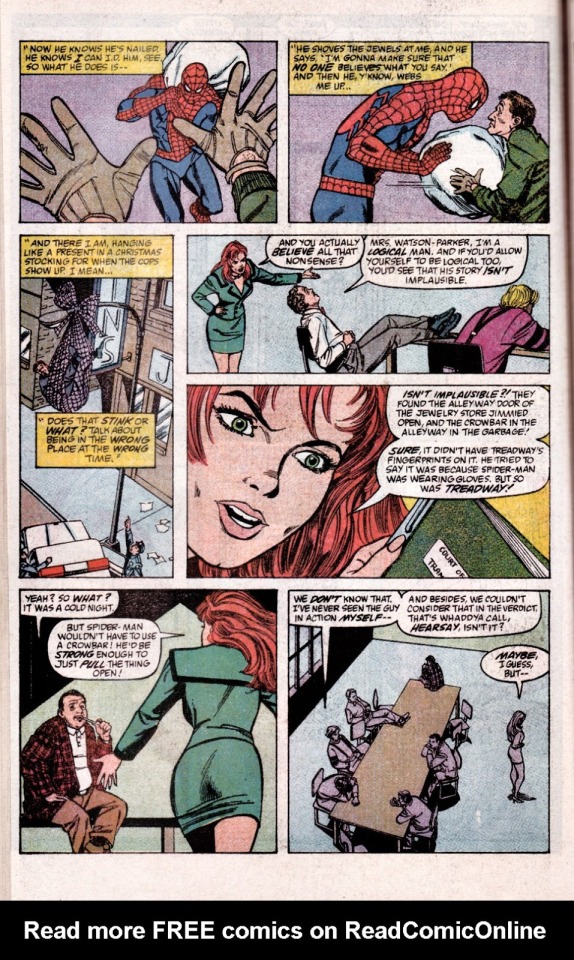
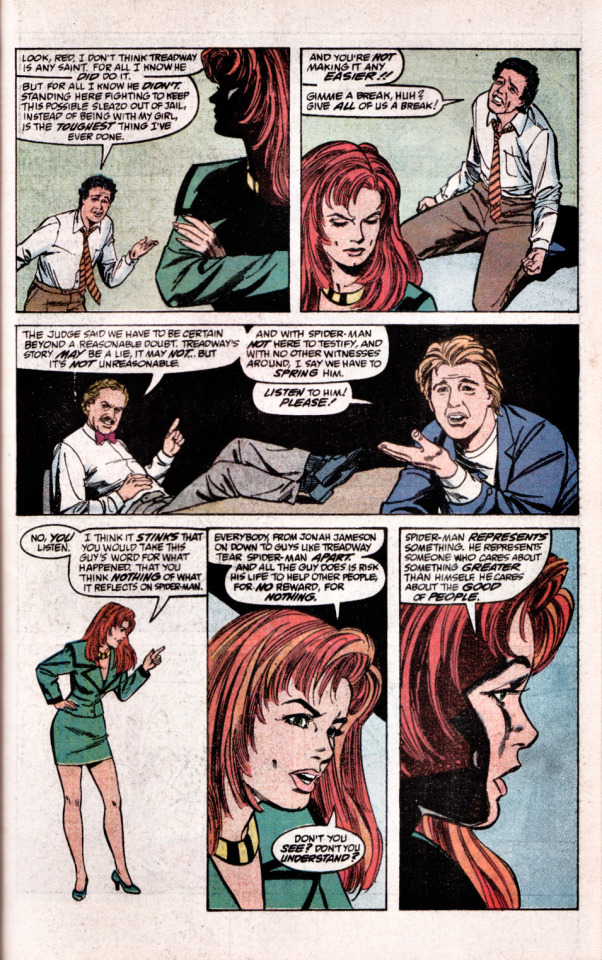

· Fettinger continues by listing off different potential father figures for Peter and examining the hypothetical end results of if they’d fulfilled their roles as father figures.
I’m going to dedicate an instalment to each one of them starting next time.
So with that I’ll leave it there.
Master Post
#spider-man#mjwatsonedit#mary jane watson#Mary Jane Watson Parker#Peter Parker#MJ Watson#Aunt May#May Parker#Ben Parker#Uncle Ben
3 notes
·
View notes
Text
The thing that is most compelling--and most frustrating--about Attack on Titan is that Isayama is not afraid to stand common tropes upon their head, and twist a standard plotline into something completely alien while still believably human, an unsettling uncanny valley of narrative, if you will. I almost gave up on it before it really began because of that.
A novel lies below.
If this were any other anime, or any other story at all, we would all know for sure that Eren is deliberately pushing away his friends. And we would know that because we would have the narrative clues that this was what was happening. I am not sure I ever encountered a story where we had the push-away-the-friend-to-protect-them plotline without some sort of hint to let us know that was happening.
In a normal story, we would get an expression or a gesture on Eren's part to at least hint that the purpose of his alienation was to protect those most precious to him. But we get none of that here. He has a flattened affect and a heavy-lidded gaze. He never deviates or backtracks from what he is saying. Someone said he looked devastated, but I don't see it. He looks detached. He beats Armin without passion; the only hint of real emotion we really see is at the end, when Armin accuses him of being a slave. For just a moment, he looks like the Eren we know with that flash of anger and hate on his face. And then it's gone again. That hit a nerve, and Armin is going to remember.
So we have three options: Eren is being controlled, Eren is in full control of his will and is choosing to ally with Zeke and means what he says, or he has full control of his will and has his own plans, and is thus lying to everyone, including Zeke.
If he told the others the truth on the train, then he cannot be telling the whole truth now, though I think the information on the Ackerbond is probably accurate, if incomplete, and it is not entirely wrong to suspect that Bert's memories do have some influence on Armin. It would be weirder if they didn't, and we've suspected a while, since Armin was a little quick to deny it when asked before.
But the statement that he has always hated Mikasa is so outrageous that it sort of reflects the Marleyan brainwashing: so amazingly, demonstratively untrue that it defies the logic of a proper response. In a situation not quite as dire I think Armin might have actually laughed. Eren was at his most genuine when he told Mikasa he would wrap that scarf around her as many times as she wanted.
Could he hate the slave he believes Mikasa to be now? Absolutely. But he didn't say, I hate you now, because I have learned that your only genuine attachment to me is a genetic construct and you have no will of your own. I might have believed that. But...I've always hated you? I think that may be the clue we are so desperately searching for. Because, again, he was either lying then, or is lying now.
I believe that he may have been genuinely wounded when he learned that both his dear friends might be "slaves" to one thing or another. He is free, he says, because he knows the truth, and he attempts to liberate them from their ignorance. But Armin points out that he is not free either, and the anger on his face lets us know that stung, so I'm guessing there is a barb of truth there, too.
So where is this uncanny narrative leading us? If I dare to predict (futile, I know), my guess is that if Eren is under any influence, it is not Zeke's. Freda and the past kings, perhaps. Maybe even the Owl, as he chops off metaphorical members, or a strange mix, all pushing him to do what must be done, or perhaps even wrestling against his plans.
My least favorite trope in the whole world is threatening the hostage to force compliance. It is my sincere belief that when someone says, "Do it or else," what they really mean is "Do it and else" (a crucial conjunction). The only solution in those cases is to comply--or not--and face the inevitable consequence, or find a third option. I would be delighted to learn that Zeke thinks he has forced Eren's hand, only to have Eren turn around and shred him. I would be so pleased if instead of the face-off between Eren and Levi we are starting to expect, we get a team-up against the Beast Titan (and a scenario where Levi doesn't have to die believing all his hope and trust has been misplaced). I can dream, can't I?
But I just don't know!
Also: I have always personally seen the Ackerbond as partially involuntary. Like, there is a choice upon giving the loyalty but once done, you're locked in. Kenny keeps coming back to Uri, and then keeps searching for him after death, planning to steal the founding titan. Levi argues, mouths off, and threatens but we never see him actually disobey Erwin (unless you count the anime which I don't). So this new information sorta fits with my headcanon. I find the notion of tapping into all the other Ackerman's experience through the paths very interesting.
(And now that makes me wonder: Could Eren, if he is lying, believe that a full on rejection might break it? Could that and his forcing Armin to think twice about Bert's influence be his parting gifts?)
And as for Levi, of course I am worried about him, despite my niece's reassurance that he is unstoppable. Kenny would be so disappointed in him right now. He taught him better than that. He should have dropped down and slit Zeke's throat the instant he chose to do it. I don't even think he has his blades on him. I was looking closely at the scene, and he has the canisters, but does he have the blades? I mean, I guess it makes sense: Why would they bother to carry blades anymore?
I assume nothing, I predict nothing. All I know is that the sense of dread just continues to grow. Merry Christmas and Happy Birthday, Levi.
318 notes
·
View notes
Text
buzzfeeding frenzy
THERE WAS SOME WEIRD DRAMA WITH BUZZFEED NEWS LAST WEEK but the upshot of it is: Donald Trump is a criminal, and that is finally starting to sink in for a critical mass of people.
While this one article didn’t dramatically change what we know about Individual-1′s ties to the Kremlin, it’s worth unpacking because it demonstrated a lot of what’s been hard to absorb about this story.
Most of us come across BuzzFeed as, you know, the website with all the “choose your favorite stadium food and we’ll tell you which Disney princess you’re most like” quizzes. Nothing wrong with that! But it can overshadow their often excellent longform reporting. Over the last couple of years they have been almost uniquely relentless about the Russian government’s years-long crime spree in western countries, from the mysterious deaths of Russians living in the UK to its apparent compromise of the US Treasury Department before the 2016 election.
BuzzFeed’s first big mainstream breakthrough in the Trump-Russia story came a little more than two years ago when they published former MI-6 agent Christopher Steele’s memos about Individual-1’s many ties to the Russian government. They emphasized that they couldn’t verify everything in the dossier, and justified the decision to publish it anyway with the fact that the memos had been circulating around the US government for months. Readers ate it up, understandably: people were confused and frightened by what had happened during the election and what would happen when President Obama turned over the keys to Individual-1, and they were frustrated about having been in the dark about the story until it was too late.
The mainstream press lost its fucking mind jumping all over each other to condemn BuzzFeed, and you didn’t exactly have to be a hardened cynic to question their motives. Mainstream political media bends over backwards to placate bad-faith Republican allegations of “liberal media bias.” After collectively donating billions of dollars in free ad time to the Trump campaign, they were eager for the opportunity to prove that they were not biased against him. Scapegoating BuzzFeed – an upstart competitor with an unserious reputation – was both useful and easy.
Even worse, the performance had an unmissable stench of guilt about it. As it turns out, the memos had been widely distributed around media circles. Steele – an established expert – had flown in from London during the election to plead with them to take the situation seriously. They ignored him and rewarded the attackers. The same people who spent October of 2016 transcribing John Podesta’s risotto recipe had passed on the story of a century, and they were SUPER mad when someone broke the omertà. (Or maybe it was #ACTUALLY ABOUT ETHICS IN JOURNALISM????!? hahahaha, no.)
There were reasonable concerns about BuzzFeed’s decision to publish Steele’s memos. Major reporting on a legitimate national security issue – not bureaucratic posturing or bad faith partisan garbage, but something that could pose a genuine threat – almost categorically can’t be an easy call, right? If something is actually serious, and someone is bothering to keep it a secret, there’s usually a good reason for it. Even if the dossier itself was already out there, somebody leaked the fact that it was in a presidential briefing; we don’t know who they were or why they did it. Anything that gets as much attention as this did as quickly as it did should probably be treated with skepticism, because bad actors are so good at gaming the algorithms that capture attention. And there were questions about its accuracy.
On balance, though, I think BuzzFeed’s decision to publish the Steele dossier has been vindicated. A lot of the allegations have been verified. Repeated attempts to disprove any of it have failed; Congressional Republicans’ desperation to do so suggests that it’s even more credible than we realize. It goaded the rest of the media into reporting on the story, which has exponentially increased the understanding of the problem we all have on our hands. Most importantly, it helped people wrap their minds around a nebulous, intimidating story which was largely derided as a Trump-like conspiracy theory. The pee tape is the least worrying thing in those memos, and unlike a lot of the more serious allegations it hasn’t been confirmed yet – but you know exactly what I’m talking about.
That’s a long wind-up, but it’s generally useful to remember that most of the people who frame this story for us are unreliable narrators, and worth recalling the specific context for the news BuzzFeed has been breaking. Last year, they reported that Michael Cohen, who was Individual-1’s personal lawyer and is now a convicted felon, had been representing Individual-1 in negotiations with high-ranking Kremlin officials to build a Trump Tower Moscow until well into the 2016 general election. Cohen had lied to Congress about this, and then told the press what he had told the committee, which of course gave anyone else who would be questioned the chance to get their stories straight. This report was confirmed at Michael Cohen’s sentencing.
So when they dropped another Cohen story late last week, people were inclined to listen. This time, they reported “sources [plural] in law enforcement” claimed that Trump had explicitly and directly asked Michael Cohen to lie in his Congressional testimony, he did it in writing, and that the special counsel’s office had “internal company emails, text messages, and a cache of other documents” to prove it.
It’s that last part that shook the world. Even if you’re paying just tangential attention to this story, you know that Trump has been directing his people to lie to law enforcement, Congress, and the public. But the claim that there was cold, hard, proof for the thing we all know, that even Senate Republicans would not even be able to feign denial about it, that would have changed everything – if true.
Late the next night, the special counsel’s office issued an extremely rare statement, saying that BuzzFeed had mischaracterized the evidence and testimony they had received. This was weird. Mueller’s office has never bothered to correct a news story before, nor have they ever waved a journalist off a story that they know is untrue. The statement isn’t even that the core allegation that Individual-1 suborned perjury (meaning, he encouraged or ordered someone to lie under oath) is wrong, just that they don’t necessarily have texts AND emails AND Google docs AND testimony to that effect.
So why did they bother? We don’t know exactly. The most optimistic interpretation is that it was a good faith reaction to the public response to the report. Members of Congress came out and said, basically, “if this is true, we need to know now.” That was reasonable, because committing or suborning perjury is just about the only thing everyone agrees counts as a high crime or misdemeanor. Mueller’s office, also quite reasonably, didn’t want Congress starting impeachment proceedings based on a report that wasn’t 100% rock-solid, so they issued this very narrow statement to cool things down. Then there’s the suggestion that Mueller’s office thought that the report made it look like they had started leaking after running a famously airtight ship for a year and a half. (Cohen was convicted in the Southern District of New York, which is of course where Individual-1 did “business” for decades. Personally, I tend to think BuzzFeed’s sources are in New York federal law enforcement.) The most alarming theory is that the Department of Justice leaned on the special counsel’s office to push back on the story. The special counsel’s office specifically exists to protect an investigation from interference by political appointees at DOJ.
Regardless of why it was issued, that statement did not calm the waters.
The BuzzFeed report prompted a round of press appearances by Individual-1’s “lawyer” Rudy Giuliani, who claimed that Trump had in fact been negotiating with Moscow to build his Russian Trump Tower at least throughout the election. He also claimed that he knew the BuzzFeed story, on which he could not comment, was not true, which he knew because he had “been through all the tapes” that he says do not exist. These aren’t lies calculated to make Individual-1 look less guilty. It is a bunch of nonsense cushioning the blow of an overt admission that Individual-1 lied a lot during the campaign about something that his previous lawyer lied to Congress to hide.
Then, as if to drive the point home, BuzzFeed posted the actual 2015 plans and letter of intent for Trump Tower Moscow. They were working with a local developer. They had picked out the site. They had a business plan and a building design, all ready to go.
Individual-1 appears undeterred. Michael Cohen had agreed to testify publicly for the three relevant House of Representatives early in February, but he backed out this week after Individual-1, over Twitter and in live interviews, started threatening to have Cohen’s father-in-law investigated. I don’t know if Trump wants to open that can of worms, since Cohen’s father-in-law is actually an old business associate of Trump’s, but the point was clear: Individual-1 is willing to throw around the power of the United States government to shut this guy up. We just went through the WHOLE THING about whether or not he acted illegally to control what Michael Cohen said to Congress, and he responded by illegally attempting to control whether or not Michael Cohen speaks to Congress!

Since Individual-1 and his Senate Republican accomplices have ignored all House Democrats’ attempts to reopen the government, House Democrats have nothing to do all day but sit around and be mad at the Puppet-in-Chief. The chairs of the committees that planned to interview Cohen issued a joint press release saying that Michael Cohen will testify whether he likes it or not because they’re not going to reward these, and this is a real quote, “textbook mob tactics.”
Look. I’m not saying my opinion is worth any more than you’re paying for it. But this episode made me think a couple things:
1. Reputable media outlets have to cut it out with the anonymous sources on this story. “Sources familiar with the matter” is not enough. Sources on Capitol Hill? Sources at the DOJ? Sources in New York? Sources meaning somebody’s defense attorney? This is infuriating.
2. Television news shows have to stop interviewing Rudy Giuliani live. He is using their air time for a disinformation blitzkrieg. By all means, they should keep him yakking away on camera. Give him all the rope you got, say I. But they should do it ON TAPE, in advance, so that they can pause the interview to fact-check him, and air his current lies back-to-back with last month’s lies so even casual viewers will grasp that he lies constantly.
3. It is appropriate that Robert Mueller is a professional who knows how to shut his piehole, unlike certain other 21st-century former FBI directors who shall remain nameless. It is also appropriate that public interest in this story is intense and unrelenting. And despite my many gripes about the media’s performance, it is absolutely appropriate that the press keep putting attention and resources toward this story. This is not a sustainable dynamic. It is unfair to keep the public in the dark. This happened to us as a country and as individuals, and we have an existential stake in the matter. As long as we want to know, we will be leaning on the American political media, which is an institution dominated by bullies whose vanity is outweighed only by their willful ignorance. Like Trumps and small children, they cannot focus long without a great deal more help than the special prosecutor’s office is equipped to provide. Our justifiable frustration is becoming an issue for the special prosecutor’s ability to the best job he can.
Fortunately, there is a way to break that loop: the Democratic House's real investigations. Subpoenas. Not just issued, but announced, publicly. Open hearings. Regular reports. Individual-1 has dug in his heels on the shutdown at least in part to obstruct the Democrats’ ability to do that, so it’s great that they have stopped giving him what he wants.
Something is happening on this story. Even hearing people talk about it is different – they speak faster and louder. This guy is on the ropes. That’s not just Mueller, it’s not just the Democratic House. It’s people, it’s you, responding to an attack on our democracy, remembering Individual-1’s illegitimacy, refusing to pretend any of this is normal, insisting that we all deserve better.
#donald trump#trump russia#special prosecutor#mueller investigation#steele dossier#michael cohen#rudy giuliani#mainstream media
9 notes
·
View notes
Text
Nobody on this website understands how the law works even a little bit.
Are there some forms of writing that are illegal in different parts of the world that absolutely shouldn’t be? Yes.
HOWEVER — whether or not a piece of writing is illegal is a HUGE SPECTRUM! Slander IS illegal BUT what is and ISN’T slander changes based on what country your court system is in, with the US being more or less the most strict, or the country it’s the hardest to get something recognized as slanderous by the court system (this variety IS good because slander IS subjective and so having other models and cases to constantly analyze and reflect on helps EVERYONE improve their OWN system) BUT slander isn’t slander UNTIL someone claims it as such, so your book or journal or article about how your neighbor is secretly worshiping demons ISN’T slander and ISN’T illegal until
1. Your neighbor decides this isn’t true
1b. (Various heavily based on place and court system) Your neighbor determines that not only is what you’re writing untrue but that you KNOW it is untrue
2. Your neighbor decides they want the dishonesty of your work to be recognized
3. That the dishonesty in your work has negatively impacted them in some way and therefore they have something at stake due to the dishonesty
3b. (Again varies heavily) That you were aware of the damages of potential for your writing to inflict these damages when you had it published
4. What they have at stake is worth the process of hiring a lawyer and going to court (this is the most subjective part of this line as the barriers to do this are going to vary and be subjective and the fairness and just of such is also subjective)
Now 4 is subjective and the most controversial because justice should be freely available however time is not a renewable commodity and as a result their is a finite amount of lawyers and judges and courtrooms and schedule time, so as a result there needs to be a prioritization system in place and in cases as subjective as slander using a form of direct gatekeeping in the form of inconvenience or fees isn’t the *worst* way of preventing every court system on earth from being clogged by petty gossip — that these cases get to court in the first place is supposed to be proof that the issue goes BEYOND petty gossip
This system cannot exist AT ALL if slander ISN’T illegal and if written works cannot be RETROACTIVELY illegal, and again — it is the job of the judge to decide for what published works this is the case and what the penalty is — everything Alex Jones said about the Sandy Hook victims WAS legal at the time he said it because of both the immediacy of the act as well as “plausible deniability” — something can’t be slanderous or liable UNTIL IT CAUSES DAMAGES, and that requires an element of time as these damages must be demonstrably consequential to the dishonesty in question. Since what Alex Jones wrote was demonstrably untrue and demonstrably brought emotional and financial damages to the families he spoke about, he was found guilty of slander, thus rendering his previous statements illegal.
The alternatives to the system would be one where nothing Alex Jones wrote or said about the Sandy Hook families was ever illegal by this metric, or a system In which only statements pre-approved by the state can be legally published.
And you know what? The law is never going to be perfect to begin with. There are things that will be legal that are bad and shouldn’t exist and there are things that will be illegal that are good and should be shared freely and openly. Part of being an adult is being able to make those individual judgements yourself.
Because it’s only illegal if you’re caught, and not everyone will get caught. This should be understood as a neutral if not good consequence of the material limitations of human government enforcement, that only the squeaky wheel gets the grease. It’s how gossip can prevail even when slander is illegal and how spotlights on websites and individuals producing and distributing hate speech (which is also illegal in some countries) and non-consensual pornography (CP, zoopholia, revenge porn, etc.)) can lead to justice for victims and prevention of further damages.
The law is not omnipresent nor is it omniscient, use that to your advantage and use it responsibly.
(Also it’s the job of the judge to determine proportional retribution for the damages of slander or other ‘illegal’ publications. That can be anything from a retraction and apology to a fine to jail time. You don’t just explode the second something you did is labeled as potentially illegal)
I'm for "no kind of writing should be illegal" in 99% of cases, but if something is being paid for by the government, they should be legally required to disclose this fact upfront, in no uncertain terms.
That is my one hard line.
33K notes
·
View notes
Text
Is Qrow Ruby’s ‘real father’? No, of course he isn’t
the notion that Qrow might be Ruby’s ‘real’, biological father has been around since he first showed up in volume 3, and in this discussion (which i’ll be sticking under a read more as common courtesy because posts like this inevitably get really long when you have to tackle a lot of factors) i’ll be going over why it’s not the case - based on Word of God and evidence in the show itself, as well as deconstructing the supposed ‘proof’ that gets cited to support the idea (read: taken out of context and twisted around to support the idea)
1. Word of God says ‘no’
Monty confirmed in 2014 that Ruby and Yang are half-sisters to different mothers (in response to a theory that Summer Rose is a time travelling Yang – the early RWBY fandom got weird) https://twitter.com/montyoum/status/492070189731565568

Barbara later echoed the statement in the RWBY Volume 3 livestreams, talking about how she loves reading all the zany theories fans come up with, and bringing ‘Qrow is Ruby’s father’ as one specifically that she doesn’t think is right.
It’s clear that the intent is that Qrow and Ruby are unrelated by blood.
“But they could be lying/misleading us”
They have never outright lied about RWBY before – if there is a question they don’t want to answer, it’ll either be ignored or joked about (for example, in a Facebook Q&A in 2015, people asked if Ironwood was half robot due to his glove covering his - what we now know to be robotic - hand. They said he was a big Michael Jackson fan, making a joke out of it and not answering the question directly). Monty answered this question directly – Ruby and Yang are half-sisters. Not cousins. So that’s Word of God, canon. They’re half-sisters.
2. Ruby’s connection to Qrow
"Ruby looks like Qrow”
No, she doesn’t. The only things they have in common are dark hair and a pale complexion (but Ruby is far paler than Qrow, and about as pale as Yang). Ruby doesn’t look like Taiyang because she is a dead ringer for Summer Rose in terms of facial appearance and hair colour (which is different from Qrow’s – Qrow has dark grey hair, while Summer and Ruby have very very dark red hair).


Similar, her dress sense is more than likely inspired by Qrow’s fashion sense, she hasn’t inherited a genetic preference for capes (especially as she’s clearly wearing the cape in reference to Summer, not Qrow), don’t be ridiculous.
"Qrow has the same colour scheme as Ruby”
Ignoring that colour schemes don’t mean anything because that’s just up to personal preference (like dress sense, it’s not genetic), this is also just plain untrue. In the volume Qrow was introduced (and when this argument first popped up), Ruby’s colour scheme was red and black. Qrow’s, meanwhile, is essentially black and white (with red as an auxiliary).
Under this logic, this of course means that Raven is actually Ruby’s other biological parent - which makes perfect sense because her hair is also black and red, like Ruby’s, and she’s far more pale than Qrow.
Ruby had the same colour scheme as Raven, Qrow’s sister, back in the first three volumes, while Qrow had the same colour scheme as Blake (but with a different auxiliary colour - red instead of purple) – in addition, Weiss had Summer’s colour scheme (primarily white) and Yang had Taiyang’s, making her the only one to line up with someone she’s actually related to.
“Ruby wields a scythe just like Qrow, and he trained her”
Weapon preferences aren’t an inherited thing (under that logic, Qrow is Blake’s father too, as her weapon is specifically classed as a Variant Chain Ballistic Scythe), nowhere in the show do we see characters having inherited weapon preferences from their parents. So Ruby choosing to wield a weapon similar to someone who has been an active part of her life since she was small, and active in the field of work she hopes to pursue, doesn’t mean anything other than that she looks up to Qrow – and he trained her because he’s close to the family (having been on the same team).
A scythe wielder training someone he knows to wield a scythe doesn’t mean they’re related.
"Ruby and Qrow have the same Aura colour – they HAVE to be related”
First off, no they don’t



Ruby’s aura is bright red (image from 3x06), Qrow’s is shown to be two different colours in separate shots (images from 3x07), but still darker than Ruby’s. It’s unclear which is the mistake – but the colour in the first seems to match his cape, which is darker than the red Ruby uses.
Second – Aura colour doesn’t mean anything; Pyrrha had a bright red Aura

but she’s not related to Ruby. Aura is the manifestation of the soul; so it’s more than likely going to match a character’s colour preference, it’s a reflection of themselves. And souls aren’t genetic (unless you’re a Schnee with their freaky hereditary semblance). So even if Qrow does have a similar Aura colour, that does not mean anything.
“Raven and Summer both have dark hair, but Yang has light hair like Taiyang. If Tai was Ruby’s father, she’d be blonde too. Genetically, it makes more sense for Qrow to be Ruby’s father.”

We’ll ignore that, in fiction, genetic probability is often ignored for the sake of symbolism or just what looks cool (see every anime protagonist with bright neon hair colours when their entire family look like normal human beings) – in fact it’s pretty common in this show already for a character to look far more like one parent than the other (Ruby’s a dead ringer for Summer, Ren looks a lot like his dad with his mother’s colour scheme, Weiss and Winter both take after their mother, Blake looks a lot like Kali but has more of her dad’s colour scheme, Yang is actually nearly identical to Raven in her youth but has Tai’s colour scheme for the most part) and go straight into the (really really simplified) science lesson:
To begin with – Alleles. An allele, to put it simply, is a name for a gene variant. Every gene has multiple variants, most are benign and don’t make a difference beyond changing the phenotype (physical appearance, though that’s really boiling it down) if at all. Sometimes harmful variants (often called ‘mutations’ but that’s really simplifying it as they’re not always ‘new’ mutations and can simply be carried down a family line until manifesting) will be in the genome and can cause permanent conditions such as Cystic Fibrosis or Ehlers-Danlos Syndrome.
We inherit two sets of chromosomes from our birth parents. So we get one copy of every gene (more or less, again, keeping things simple) from each parent. And this is where you will probably have heard of ‘Dominant’ and ‘Recessive’ genes. The correct terminology, as you might have guessed, is Dominant and Recessive alleles.
A Dominant allele will always be expressed over a Recessive allele, unless there are no Dominant alleles, in which case the Recessive allele (and the phenotype it encodes) will be expressed.
So bringing things back to RWBY – Yang has blonde hair like her father, while Raven has dark hair.
I’m going to use a diagram called a Punnett Square to demonstrate how this works. A Punnett Square is a simplified diagram showing inheritance probability – the chance of the offspring of any two individuals inheriting a particular arrangement of alleles.
In reality, blondness is a recessive trait; meaning Taiyang has two copies of a recessive gene encoding hair colour – signified in this diagram with the lower case b.
So any children Taiyang has will definitely inherit one of these recessive alleles.
Yang’s birth mother, Raven Branwen, must also have one of these recessive alleles for Yang to be blonde. As Raven herself is not blonde (and is therefore a carrier of the recessive trait), she must also have a dominant allele, signified in the diagram with an upper case B.
So filling in the square

we see that two of the four combinations have both recessive alleles – meaning there is a 50% chance that any child that Raven and Tai could have had could be blond (homozygous –two of the same allele), and a 50% chance that they would instead have Raven’s dark hair (heterozygous –two different alleles).
So from this, because we know Taiyang’s alleles for hair colour are recessive, we can assume that Summer carries at least one dominant allele encoding for her dark red hair, which Ruby inherited (similarly, blue eyes are another typically recessive trait. That Yang has purple eyes suggests that red eyes are another recessive trait in-universe, meaning Raven has two recessive alleles there – seen in this second Punnett Square depicting inheritance of those alleles

showing a 100% chance that every child of theirs would have purple eyes, as the traits would be co-recessive - neither more dominant than the other).
We don’t know what Yang’s maternal grandparents looked like, but we can assume one at the very least carried a recessive blond allele like Raven does. This means there is a minimum 50% chance that Qrow, Raven’s twin brother, inherited that same recessive allele from that parent (as non-identical twins, like most full-blooded siblings, have a 50% chance of inheriting the same allele from a particular parent).
We don’t know Summer’s genotype, so we don’t know if she was homozygous or heterozygous for dark red hair and silver eye alleles, as the whole thing is a 50% chance rate, but Ruby is identical to Summer and possesses those traits, meaning those alleles are Dominant.
So then we get into the potential fathers – now Taiyang’s hair and eye colour alleles are both recessive, so Summer passing on her dominant alleles means a 50% (if heterozygous) minimum chance that those children would look like Summer. Qrow on the other hand, while possessing a recessive trait when it comes to eye colour (so same chance of passing on Silver Eyes as with Tai), does not when it comes to hair colour. Qrow has at least one allele for expressing dark (gray) hair, and that is presumably dominant as it would be in reality; however Ruby definitely has Summer’s dark red hair allele, meaning if Qrow is her biological father, he did not pass that gene on or it’s not as dominant as the dark red hair allele (as there is no sign of co-dominance where both traits are expressed to a degree).
What this means is that, based on hair and eye colour (the traits normally cited when it comes to this subject), there would be no genetic basis for arguing one way or the other, because Summer’s traits are dominant, and Tai and Qrow both carry recessive traits. So this argument is moot.
Now, if I were to joke around, I could say that because Ruby, following the time skip, has grown to have a figure more like Yang does, they must have gotten those traits from the same side of the family. However, we can see that Raven is quite slight, she’s not as developed as Yang is (and we haven’t seen Summer to know either way), so it’s more reasonable to assume that those physical attributes come from Taiyang’s side of the family. So while I personally wouldn’t say there’s any argument that could be made using genetics (simply because we don’t know enough about Qrow or Summer’s genotypes), that could be used to suggest Tai would be more likely. Especially as, with Occam’s Razor meaning the solution with the least number of assumptions is the most likely to be correct, Taiyang has no dominant traits that could interfere with the expression of Summer’s alleles, while Qrow potentially could, but we have to assume on that score.
And just to close this little journey into science out, I’m going back to earlier in saying that genetics shouldn’t really be taken into consideration, it’s highly unlikely the writers were thinking that in-depth about it, and the show’s relationship with genetics in general is shaky at best. Just look at the Faunus – from what we’re told, we can actually put together that humans and Faunus are the exact same species at a genetic level (though considered separate societally), with the only difference being a single allele (and for Faunus-human offspring to have a higher chance of being Faunus, the allele expressing Faunus traits is dominant), and that they have essentially the entire animal kingdom in their genes (for two Faunus with different animal traits to be able to produce offspring with an utterly different animal trait than the parents), all on a single genetic pathway activated by a single gene, for a trait that can be manifested anywhere on the body. That’s not possible unless magic is involved (which to be fair is likely but I doubt this is the reasoning).
Science lesson over.
"Qrow acts more like a father to Ruby than Taiyang does”
Well first off, this is an unfair claim to make, as Ruby and Taiyang have only shared one scene together (where he had fallen asleep at her bedside waiting for her to wake up, I might add, and after she wakes up he’s concerned, doting, goes to get her tea - that’s pretty damn parental), so we don’t really get an idea of how close they are. While Qrow and Ruby have had multiple scenes together simply because that’s the way narrative has gone.
Tai leaving the room and looking angry at Qrow for asking for alone time is often used as ‘proof’ of this argument, that Tai is angry at Qrow for being an irresponsible parent who only comes in when it suits him. When all it really is, is a concerned father whose daughter has just woken up from a coma and he’s understandably worried about her (and we know he’s overprotective of Ruby; as per her conversation with Penny in volume 2) and so not telling her what precisely she did on the tower because it’s something to do with Summer (who is, y’know, dead, for reasons almost certainly tied to her Silver Eyes, so Tai wanting to avoid the subject for fear of history repeating is understandable), and so his anger at Qrow is a) because he wants to be by Ruby’s side as she’s still recovering and b) because he knows that Qrow is going to tell Ruby what she did (and so encourage her to run off and potentially get hurt again) and is kicking him out of the room so he can’t stop it (and Taiyang admits to stopping Qrow from giving Yang information, so we know it’s something he’d do).
Qrow, while having more scenes with Ruby, doesn’t act like a father. He’s a barely functional alcoholic, he’s rarely around, only hangs out with his nieces for a brief period of time (and he wasn’t at Beacon to see them in the first place) and then leaves to do more work – he’s more a fun uncle (because, surprise-surprise, he is an uncle!). And his behaviour in volume 4, following Ruby at a distance and not letting her know he’s there isn’t a particularly fatherly thing to do even when Ruby isn’t well outside her comfort zone. This trend continues in volume 5 as we see he leaves the kids alone to go out drinking and generally spends little time with them.
Now, Qrow has without a doubt been a big part of Ruby’s life since she was young, but that doesn’t mean he’s her father. I mean, in volume 4, episode 4, we see Yang implicitly saying that she sees Qrow as a ‘father-figure’ (as her discussion with Taiyang was echoing points Qrow made in volume 3 episode 4), but we’ve got no idea if Ruby does, but if she does, then it’s still nothing special, because it’s both Ruby and Yang seeing Qrow as a father-figure.
Finally, if Qrow is Ruby’s father, then his comments disparaging Raven’s poor parenting would be incredibly hypocritical of him, as he’d pushed Ruby to leave Yang behind and cross two continents to track down an opponent she has no hope of actually beating in a straight fight. And additionally, Raven does not call him on that, which you’d think she would, instead of trying to defend her actions.
"Ruby acts like Qrow”
Only so far as being reckless when she fights, rushing into danger, and that can be chalked up to him training her.
However, Ruby also reflects Taiyang’s more… eccentric traits. He mailed Zwei to the girls at Beacon, Ruby later suggested the team mail themselves to Mountain Glenn.
And this is a nature vs nurture thing; determining how much of someone’s personality comes from their blood relatives and how much of it comes from the environment they’re raised in (and specifically the people they were raised by). As Ruby was raised around both Taiyang and Qrow, her having personality traits reflective of both is understandable, this isn’t proof one way or another.
”The only reason Qrow would care about Ruby is if he was related to her”
This isn’t an argument I’ve actually seen put explicitly like this, but it is very often an Implication when this subject is brought up. The situation is treated like there is no possible way a man could possibly care about a kid he isn’t related to, so he has to be their father. Which is just such nonsense, people can care about other people without being related to them



Found Family is a very popular trope (and given how Qrow talks about the people who raised him, very much in play with Qrow, who was obviously happier with the family he found at Beacon than the bandits he grew up with).
”But he went specifically to look out for Ruby after volume 3, but he’s blood related to Yang. Why would he leave Yang if Ruby wasn’t related to him?”
As harsh as this is gonna sound – Yang wasn’t going anywhere. She was safe at home, while Ruby was heading into the wilds of the world and Qrow had good reason to assume Salem’s agents would be after her.
And as I already went into, you don’t have to be blood to care about people – Ruby is family, regardless of who she’s related to, and Qrow was her teacher.
On top of that, Ruby is a Silver Eyed Warrior – she has this special magic power that can affect Grimm and apparently Cinder too; Qrow is still following Ozpin’s plans after his disappearance/death, so keeping tabs on someone Ozpin had taken an interest in is more than enough to explain that even without the personal connection.
3. Story Elements
Now a big part of the reason this idea of Qrow being Ruby’s father seems to be so popular is that a lot of people seem to be stuck on this idea that it would “be a good twist” or that “it makes sense”. But, I hate to say (not really), it really wouldn’t be and no, it doesn’t.
Another thing, that came up with volume 4, is that people seem to think ‘Bad Luck Charm’, Qrow’s image song, supports the idea, and I’ll get into why that’s not true in this section. So let’s get into this:
"It would be a good twist”
The reason Qrow being Ruby’s father would not be a ‘good twist’ is because there’s no narrative stake on Ruby’s parentage. The most that comes into play with Ruby’s heritage is Summer, which is understandable because of her Silver Eyes. Adding “who’s your daddy” drama would unnecessarily complicate Ruby’s current arc.
One reason I see on occasion on why people wanted this idea to be the case is “so Ruby can inherit Qrow’s shapeshifting magical ability” (this was before we learned such powers came from Ozpin). And that’s really confusing because… Ruby’s already got bloodline magic powers, with her Silver Eyes. She doesn’t need more. Besides, Ruby has wolf imagery (Monty originally designed her to be more ‘wolf-like’, she’s based on Little Red Riding Hood, a story which famously features a wolf, introduced fighting Beowolves, has a pet dog and has ‘circling doggos’ when dazed – 1x08), not bird imagery like the Branwens have.
Honestly, it’s like Yang is being forgotten about. Yang is Qrow’s niece by blood; she’s the Branwen on team RWBY, if anyone would inherit magical bloodline powers related to the Branwens it should be her (though, again, as that was Ozpin magic, it may not be inheritable - and if by some strange twist it is, we haven’t seen it yet, or we have an it’s just manifested differently than ‘turns into a bird’ - her fire abilities are strangely inconsistent to what we consider her ‘semblance’.)
So, narratively, it’s already poor because it’s creating unnecessary family drama and ignoring that RWBY already has a Branwen on the team, so it’s redundant as well.
But it’s also a bad twist because, what changes? In a story with a ‘surprise heritage’ twist, the reason the protagonist doesn’t know this other person is their parent is because that person is often either not around or is kept away. But Qrow has been around for Ruby’s whole life, he’s a welcome part of it, he doesn’t go out of his way to avoid Ruby or Yang. He taught her how to fight, he was a teacher at her school (which means his semblance isn’t so bad that he can’t be around people for long stretches of time, because I know people love to jump on that, ‘oh he can’t let Ruby know because of his semblance, it’s bad luck’ – it obviously can’t be, because otherwise how would he have managed to be a teacher? How would he have managed when he was at school? At most his semblance, in relaxed settings, just means someone occasionally walks into a doorframe or trips over their feet, log falls out of a fire. He’s not that dangerous to be around despite how emo he gets over it and likely takes necessary precautions). So there’s no narrative tension to him telling her, because then what changes? Does she start calling Qrow ‘dad’ and Taiyang ‘uncle Tai’? Does she start calling Yang ‘cousin’? No, of course she doesn’t, because her relationships with them wouldn’t change in the slightest (beyond maybe anger and confusion at being lied to, and that’d pass with time). Or does it make tensions between Taiyang and Qrow worse, and so make it about them instead of Ruby, the main character?
Ultimately, this would just be a cheap, soap opera twist for shock, and ultimately change nothing, it wouldn’t add to Ruby’s narrative. And soap opera drama isn’t necessary, when narrative drama is already happening for Ruby, and all this would do is complicate things for something that ultimately amounts to nothing.
"But it makes more sense for Qrow to be Ruby’s father”
Nope, no, it doesn’t. Because think about it; I mentioned before that this idea would be redundant because Yang’s already the team’s Branwen – and that redundancy is definitely the case here too.
For Qrow to be Ruby’s father, but Ruby unaware, that means that both Yang and Ruby have birth parents they weren’t raised by or initially informed of. We’ve already had the ‘surprise heritage’ twist with Yang’s backstory, and it really stretches disbelief to do near the exact same thing twice in the same story, in the same family.
The blow-up from Yang finding out about Raven nearly got Yang and Ruby killed. And yet even after that, apparently Ruby and Yang were still lied to about Qrow being Ruby’s father. That is a horrific violation of common sense; because what’s stopping the same thing happening a second time if Qrow’s away, Tai dies and then Ruby gets the revelation that Taiyang wasn’t her father and she has to go searching for him? Why not just tell her, to avoid the possibility of that happening? Isn’t that safer than keeping it secret ‘because he’s bad luck’?
Ultimately, it’s redundant, and takes away from Yang’s story by doing the same thing with Ruby (with even less reason to do so). And so then a big part of Yang’s story is made less special.
Now let’s look at some of the reasons this idea is said to make ‘more sense’:
"Taiyang moved on too quickly – for Taiyang to have realistically gotten with Summer within two years, Summer would have to already be pregnant with Qrow’s child and they were only together to take care of their kids”
This is nonsense, which seems to be based in assuming that Taiyang reacted to Raven leaving similarly to how he did with Summer’s death, by shutting down.
But there’s a vast difference between the two – someone leaving is a very different impact to someone being taken away. It still hurts, but there’s less to grieve. So it’s totally realistic for someone to have a bad break up (which is essentially what happened) and then a new relationship sparks with someone else within a year or so (especially as Taiyang and Summer already knew each other from being on the same team; and it’s possible she was around more helping him take care of Yang before it really started – fact of the matter is, we really don’t know much about team STRQ from that time period and what their relationships with each other were like, but we do know that Yang thought of Summer as ‘mom’, meaning she was there pretty early on).
On top of that, Yang explicitly states that the reason for Taiyang’s shutdown/not being around much afterwards is because Summer was the second love he’d lost – indicating that it was the combined impact of Summer’s death and the not-yet-healed wounds of Raven’s departure that caused that. So they very plainly were not just together ‘for the kids’, because Taiyang clearly loved her enough that losing her led to such a devastating response. And in addition, we don’t hear how Summer’s death affected Qrow’s behaviour, if it did at all, so it’s very strange that Taiyang’s devastated reaction is paid attention to if he was only with Summer for the kids, and it was Qrow that Summer loved.
We have absolutely no indication in canon that Qrow and Summer ever saw each other as more than friends. This is just plainly heteronormativity (and specifically the idea that men and women can’t just be friends) and the Pair the Spares trope in action (because Tai and Raven were together, so Qrow and Summer obviously got together too. They couldn’t have just stayed single or anything).
“Summer must have cheated on Taiyang with Qrow, because Ruby looks like Qrow”
While I already debunked Ruby looking like Qrow earlier, I’m exploring this point because this is flagrant character defamation.
We know very little about Summer Rose, but what we do hear is all positive.
So this notion that Summer was an adulterer, that she would and did cheat on someone - cheating being an utterly horrible thing to do to a person - is absurd when there’s nothing about her that we’ve heard that suggests she would do that. And all to satisfy… what exactly? That’s the biggest part of this idea that makes no sense to me, what’s the reason? Why do people like it? Is it because they ship Qrow and Summer (which is… interesting because Qrow has an established character while we know very little about Summer’s character and also she’s dead) and want to push it into canon? Or is it one of the reasons I went into and deconstructed earlier, ‘Ruby getting more magic powers’, ‘Because people can’t love people they’re not related to’, ‘they look alike and so must be related’? Ultimately, there’s really nothing that supports the idea, and a whole lot that goes against it.
"Bad Luck Charm”
Coming back to Qrow’s volume 4 image song. One thing that now gets cited a lot as ‘proof’ is the lines “You and I are not the same/You don’t want the burden of my name”, and taking that to mean “you’re my daughter but it’s better that you don’t know”.
But that line is taken wholly out of context from the rest of the song, and even the rest of the verse it’s in:
“You should trust one thing take my advice If you linger close It’s a hefty price You and I are not the same You don’t want the burden of my name”
This verse is a warning – because the line about his name? That’s a reference to Qrow talking about his name in A Much Needed Talk (Volume 4 Episode 8). That he was named after CROWS because they’re a symbol of bad luck. That’s the point of the song in general, it’s a warning to the listener (the song never makes any specific reference to the audience it’s directed at either, so it’s a general warning to anybody, not someone in particular) that he’s bad luck. It’s not some “ooo i’m secretly your father ooo” line in a song that is otherwise constantly about how he’s bad luck.
What that is, taking the line out of context to use as proof, is cherry-picking. Using out of context details that supports your point while ignoring all the rest of the information that contradicts it to push for it.
I can do the same thing with the same song, look:
“I'm a cursed black cat” – Well, I guess this means that Qrow is Blake’s father because she’s a cat Faunus and has a primarily black colour scheme.
“I'm an albatross” – Oh god, Qrow’s is Yang’s father too – she has flight imagery so it must be true.
"I'm a mirror broken” – And Weiss’s father too, because Weiss has mirror imagery which means he’s definitely her father because it’s not like ‘broken mirrors’ are bad luck and that’s what the song is about
Do you see what I mean? If you have to take specific lines and scenes out of context to prove your point, then your point doesn’t exist.
4. “It’s just a theory, stop freaking out about it”
This is something I see in response to pieces attempting to debunk this idea of Qrow being Ruby’s father – that people annoyed at it should stop complaining because “it’s just a theory.”
Now to begin with on this point; the reason people are so annoyed by it is because, despite the Word of God information, nothing in canon supporting it and the only supporting information being either made up or taken out of context, a lot of people are so insistent on it being canon, and refuse to listen when people point out the holes in it.
Secondly, it’s not a theory. A theory is, typically, a logical, intuitive leap based on existing information. Qrow being Ruby’s real father, as I just said, is the exact opposite of that, because it’s based on nothing but misconstrued moments taken out of context, contradicting the existing information and statements from the creators of the show. At that point it’s not even a headcanon – which would be a small idea that isn’t directly contradicted by canon but isn’t necessarily supported by it either. “Qrow is Ruby’s real father” is an AU concept. It’s not a theory, can we please stop pretending that it is.
And ultimately, Qrow can still love Ruby like family even if he’s not related to her by blood (I mean, Summer is Yang’s mom, she raised her, she wanted to be part of Yang’s life, unlike Raven, who is Yang’s mother by blood only), so I don’t see why people are so insistent on Qrow being Ruby’s father in canon, because he doesn’t have to be.
Anyway, that’s that, thanks for reading
383 notes
·
View notes